For a tiny country, Scotland has a huge heart and breathtaking natural beauty. It’s also culturally diverse, progressive and has a world-famous national dress (there’s never any doubt where a man in a kilt is from).
As well as all that, Scotland has a rich stock of baby names. Whether they’re based on the Scots language or the nation’s dramatic islands, these Scottish baby names will add a distinct Celtic quality to your baby name list.
Isla
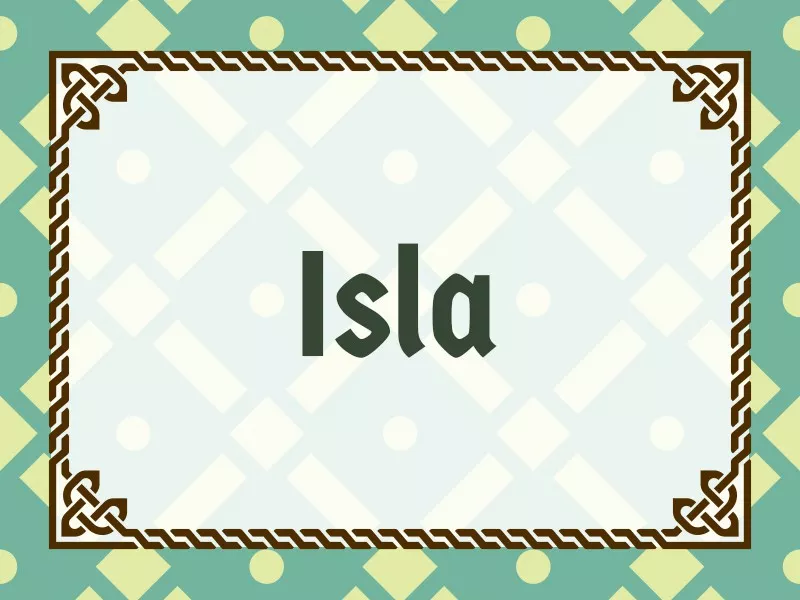
Isla doesn’t only mean “island” — it’s the name of an actual Scottish island (spelled Islay). There’s also a river with the same name in Scotland, so those Celtic connections are strong.
Most people will connect the name to Australian actress Isla Fisher, whose parents were born in Scotland. It was the highest-ranking girl’s name in its home country in 2020 and is also a top 10 choice in England, Finland, New Zealand and Australia.
Hamish
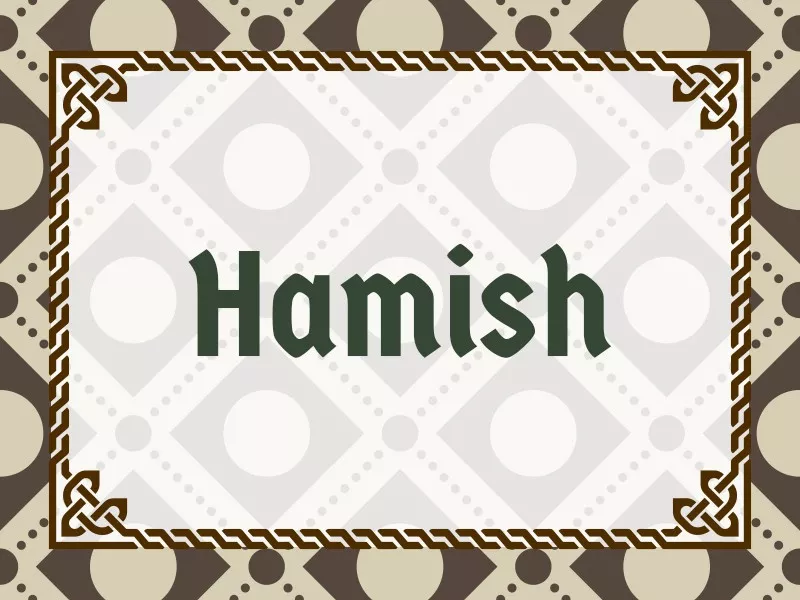
The Scottish version of James, Hamish means “supplanter” and is also a nickname for a Highlander.
It’s a top 100 name in both Scotland and Australia and may be more familiar in the U.S. these days thanks to Hamish McKenzie in the TV series “Outlander.” You’ll also find Hamishes in “Braveheart” and Pixar’s “Brave.”
Ailsa
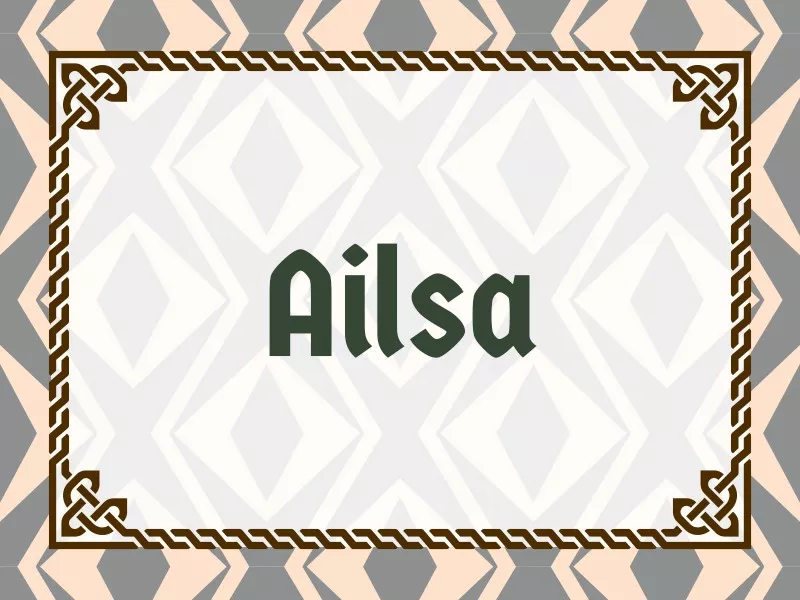
A traditional Scottish name for girls, Ailsa comes from a small, uninhabited island in the Firth of Clyde called Ailsa Craig. As the most conspicuous landmark in the sea between Scotland and Ireland, it’s sometimes called “Paddy’s milestone.”
Despite its long history, Ailsa seems a more modern choice than Alison or Ashley.
Cameron
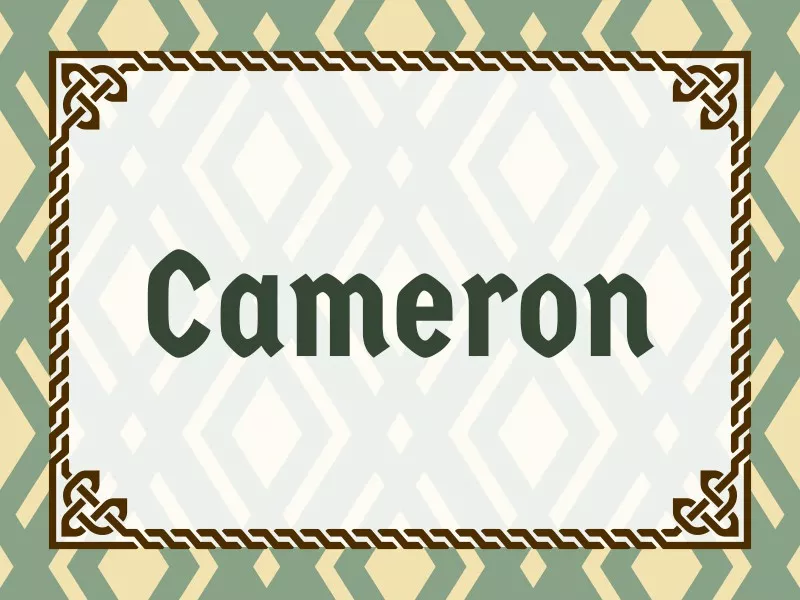
Originally a Scottish surname, Cameron means “crooked nose.” Typically a boy’s name, Hollywood darling Cameron Diaz has helped popularize it for girls, too.
In 2020, it enjoyed a No. 64 spot on the U.S. baby name chart, not too far from its all-time high of No. 31 in 2000.
Bonnie
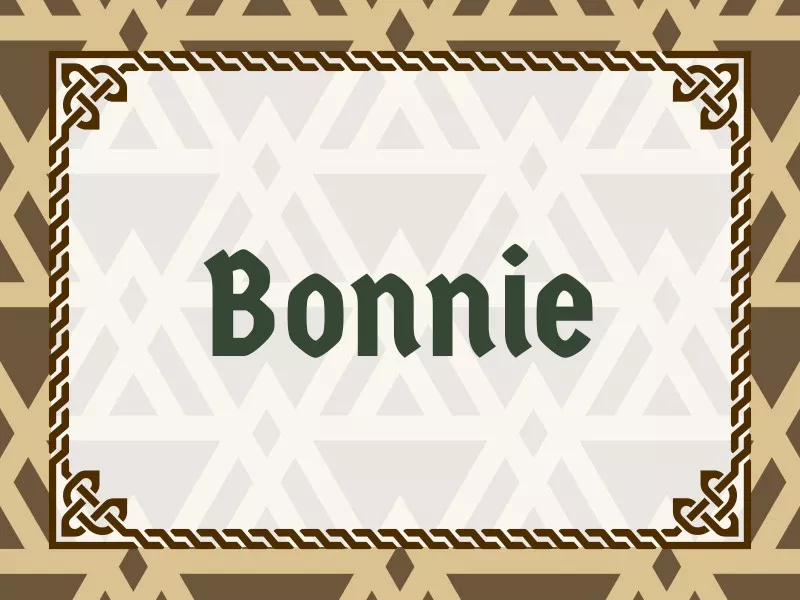
Bonnie literally means “beautiful” in the Scots vernacular, so it’s no surprise that the name’s official meaning is “beautiful, cheerful.”
It’s moved on from “Gone With the Wind” and “Bonnie and Clyde” in recent times, thanks to the Bonnies in “The Vampire Diaries,” “How to Get Away With Murder,” “The Walking Dead” and “The Hunger Games.”
Blair
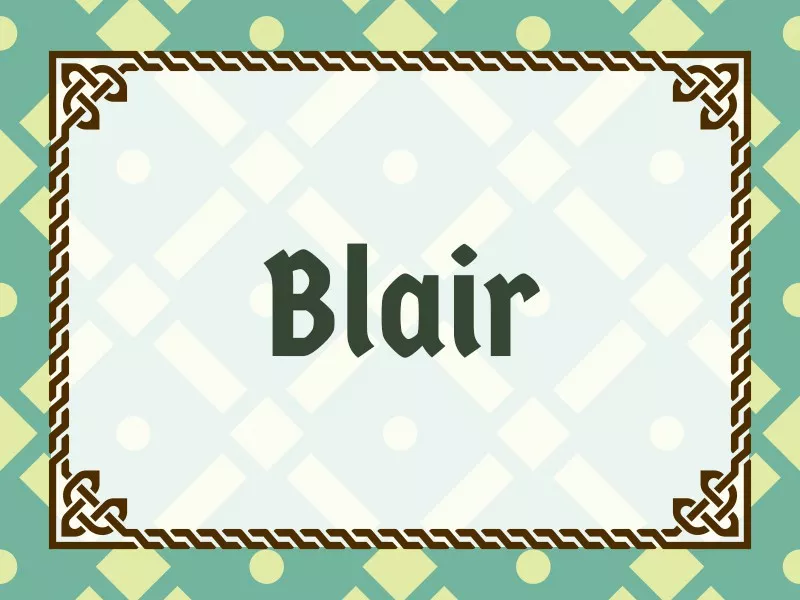
Another gender-neutral baby name, Blair means “dweller on the plain.”
It ranked No. 85 on Scotland’s baby boy chart in 2020, but in the U.S., it’s much more popular for girls. The most famous pop culture reference is Blair Cornelia Waldorf, the main character on the TV series “Gossip Girl.”
Catriona
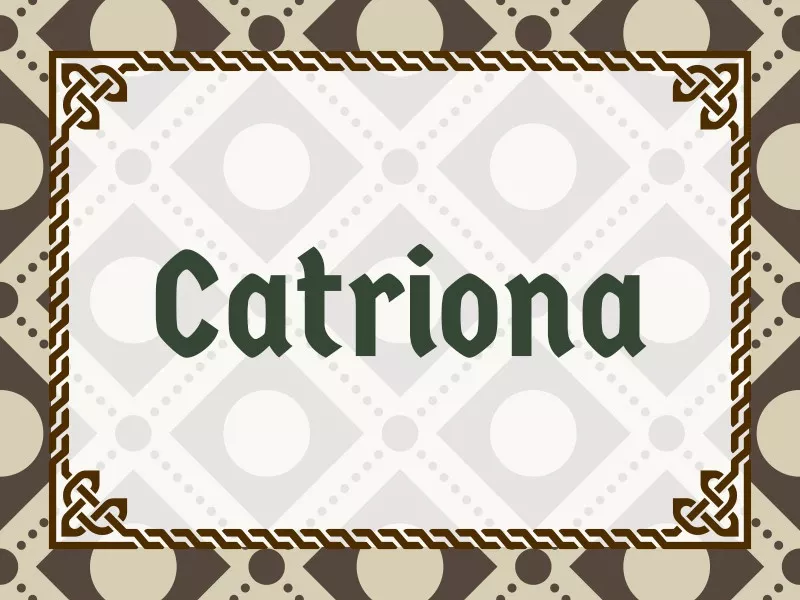
The Gaelic form of Katherine, Catriona (pronounced Katrina) means “pure.”
According to Nameberry, the name grew in popularity after word spread of the Catholic icon Catherine of Alexandria. And Robert Louis Stevenson’s 1893 novel “Catriona”, the sequel to “Kidnapped” secured it more fans.
Brodie
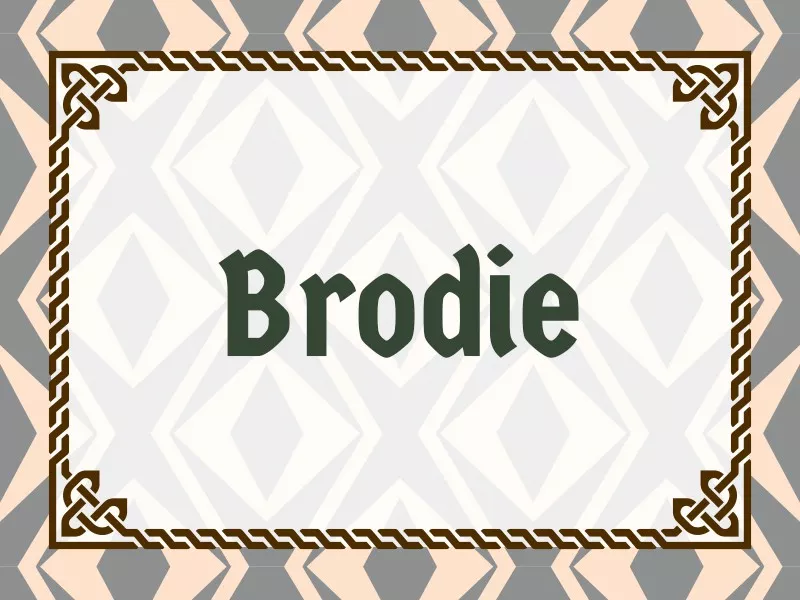
A Scottish surname meaning “little ridge,” Brodie is most often seen spelled Brody in the U.S.
It’s hugely popular on Scottish soil, ranking No. 17 in 2020, but it’s been on the decline in the U.S. since 2008.
Lorna
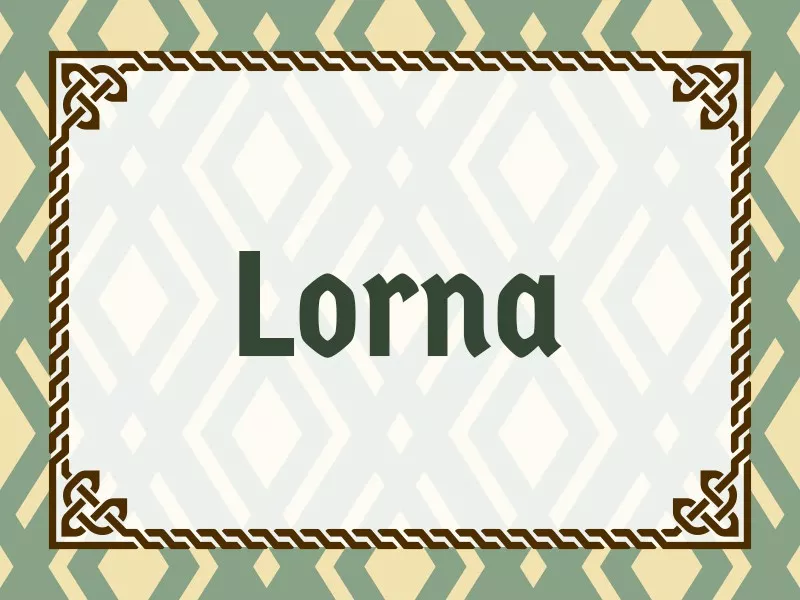
Despite being an English name, Lorna is so closely linked with Scotland that it deserves a place on this list.
The confusion over its birthright may stem from the fact that it was invented for a literary character — in this case the protagonist of the 1869 novel “Lorna Doone” by R. D. Blackmore. Blackmore claimed it was inspired by an ancient province in the west of Scotland, named Lorn.
Drew
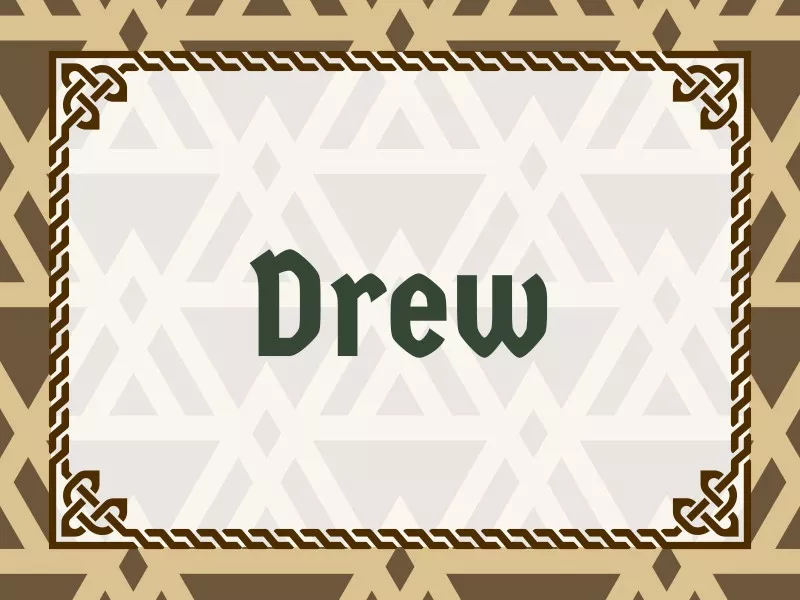
The short form of Andrew, meaning “strong and manly,” Drew is of Greek origin but has strong links to Scotland — the patron saint of the country is Andrew.
The town of St. Andrews is known throughout the world for being the home of golf and having the oldest university in Scotland. (Royal fans will know that it’s where Prince William first met his future wife, Kate Middleton.)
Fiona
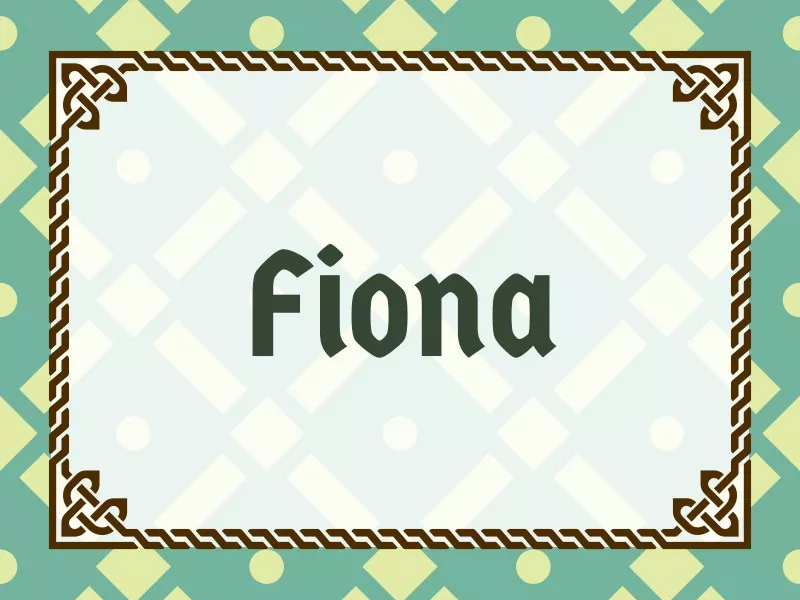
Meaning “white, fair,” Fiona has an interesting history. It first appeared in James Macpherson’s Ossianic poems, then became popular in the late 19th century as a feminine pseudonym for a Scottish male writer.
Modern Fionas include musician Fiona Apple and Princess Fiona in “Shrek.”
Alastair
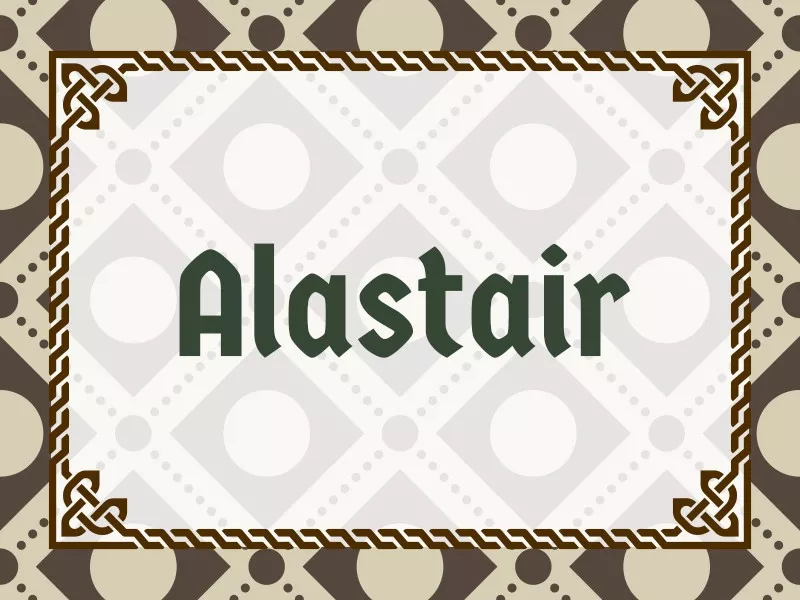
A Scottish name meaning “defender of men,” Alastair is a traditional choice that carries a variety of spellings, including Alistair and Alasdair.
In the U.S., the most famous person to bear this name is journalist Alastair Cook, while on U.K. soil, it’s attached to several actors, writers and politicians. In 2006, it got a rock ‘n’ roll seal of approval when Rod Stewart chose it for his son.
Skye
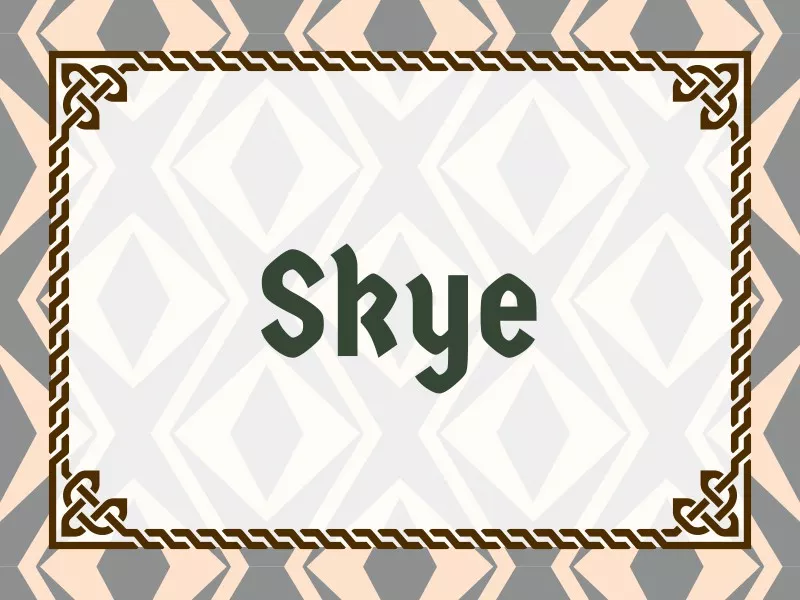
Another Scottish island name, Skye remains a popular bohemian choice, both with and without the “e.” It also owes a lot to the character Skye Chandler, who appeared on no less than three soaps: “All My Children,” “One Life to Live” and “General Hospital.”
Younger generations will know Skye from “13 Reasons Why” and “Marvel’s AGENTS of Shield.”
Craig
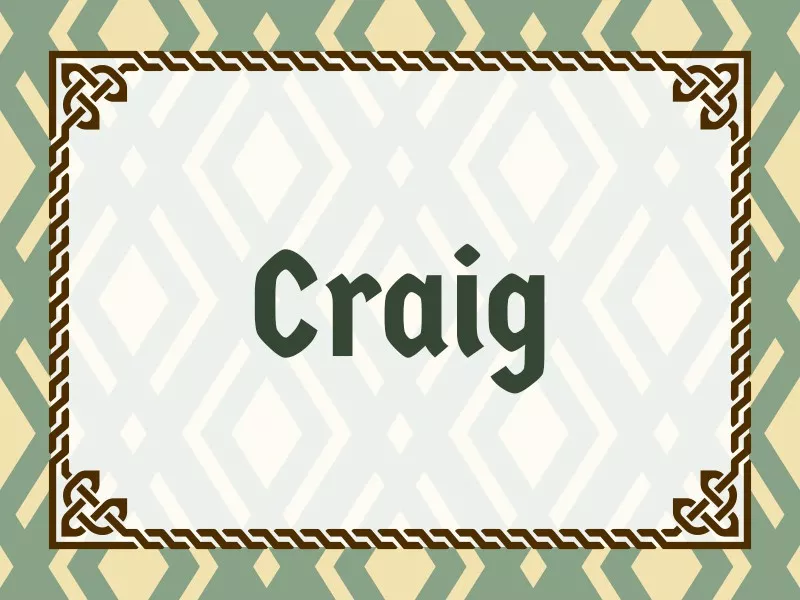
A traditional Scottish name meaning “from the rocks,” Craig isn’t as popular as it once was. It dropped out of the U.S. baby name chart in 2018, replaced by other one-syllable options like Clay and Cole.
Craig is actually a common surname in Scotland, as in James Bond actor Daniel Craig.
Iona
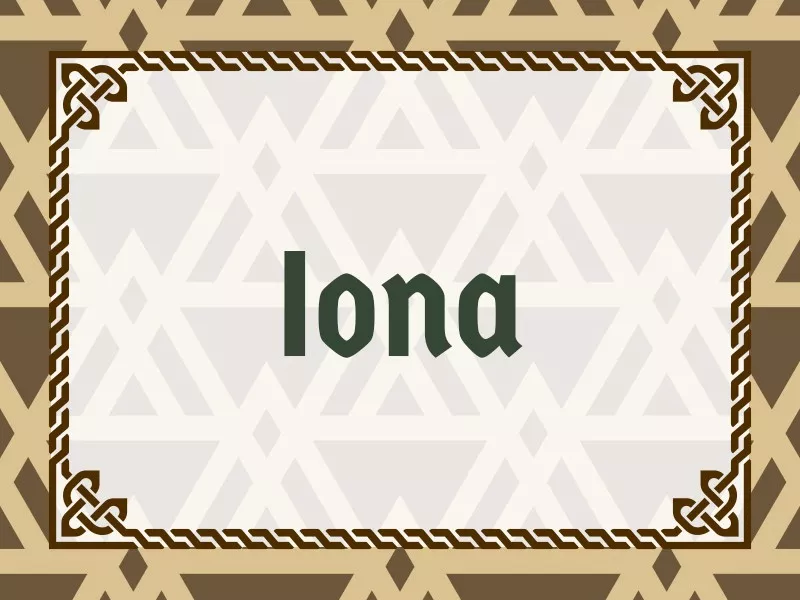
A small island in the Inner Hebrides, Iona is another pretty Scottish place name. It ranked No. 63 in its homeland in 2020 and is starting to pick up in the U.S. as well.
New York’s Iona College, named after the island in honor of Irish monk Saint Columba, is known for having one of the country’s top business schools.
Duncan
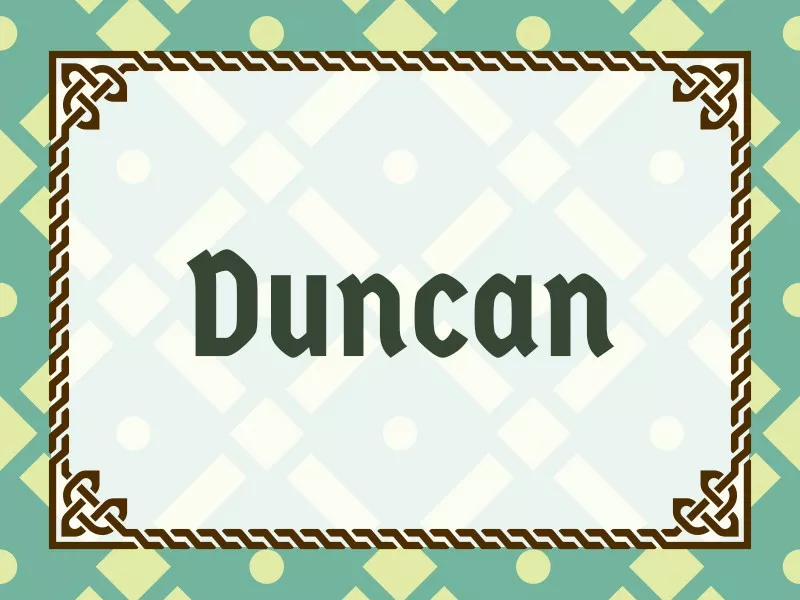
Duncan, the “dark warrior,” has strong royal connections thanks to Duncan the First, who was king of the Scots from 1034 to 1040.
The name can be found in Scotland’s oldest records in its various Gaelic forms: Dunchad, Donchadh, Donachie and Donnchadh. There’s also a literary link via Shakespeare’s play “Macbeth.”
Eilidh
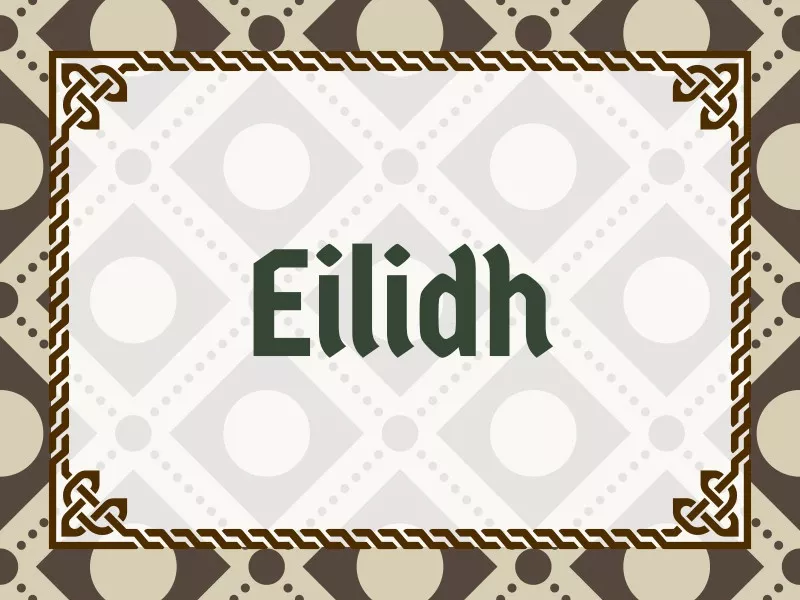
Meaning “sun, radiant one,” Eilidh is said to be the Gaelic form of Helen but is also a variation of both Ellie and Elizabeth.
Also spelled Ailidh, Ailie or Ailey, it ranked in the top 25 in Scotland in 2020 and is slowly becoming more popular in the U.S.
Fraser
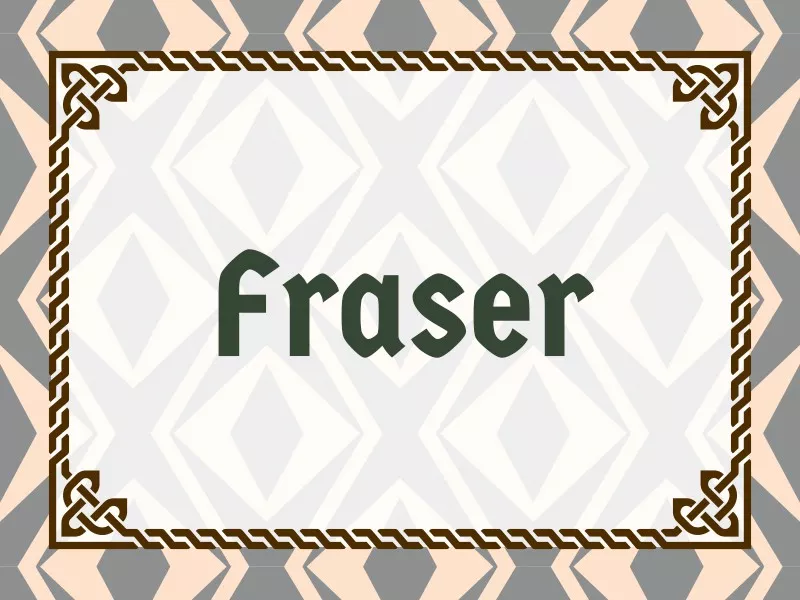
A Scottish name with a fruity meaning derived from the French “fraise” meaning “strawberry,” Fraser ranked No. 59 in its home country in 2020.
In the U.S., the alternative spelling Frasier is best-known thanks to Kelsey Grammar’s enduring sitcom character.
Rhona
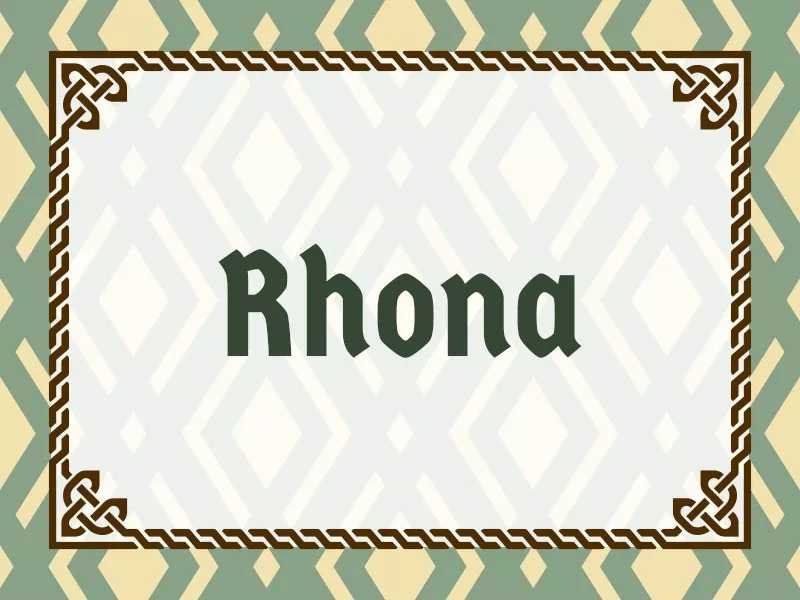
Yet another Scottish place name, Rhona is likely to come from the Hebridean island Rona, which means “rough island.”
It’s never charted in the U.S., but fans of the early 1990s R&B group En Vogue might recall that one of the members was named Rhona Bennett.
Kenneth
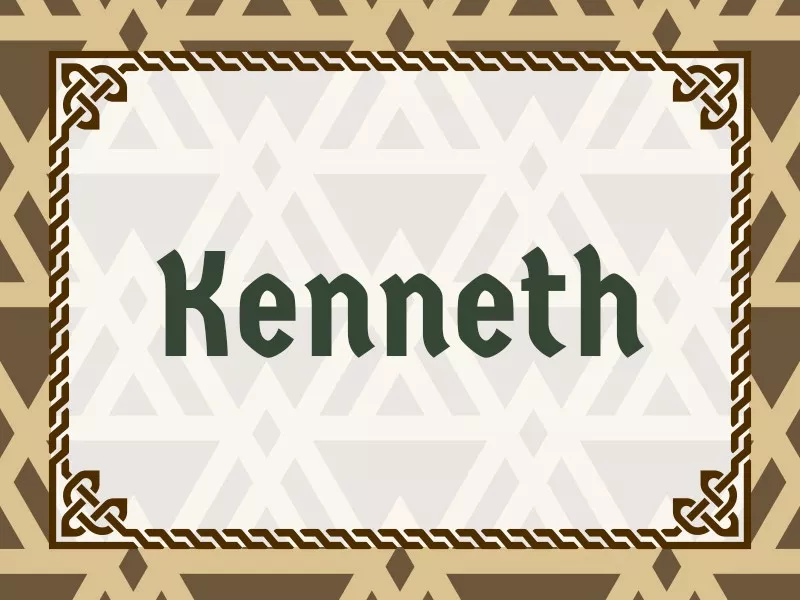
With Scottish and Irish roots, Kenneth means “born of fire, handsome.” It’s the name of Scotland’s first king as well as the hero of Sir Walter Scott’s “The Talisman.”
Despite its somewhat outdated vibe, it still ranks pretty highly in the U.S. — landing at No. 243 in 2020. There are plenty of famous Kenneths out there, from actor/director Kenneth Brannagh to R&B singer/producer Kenneth “Babyface” Edmonds.
Senga
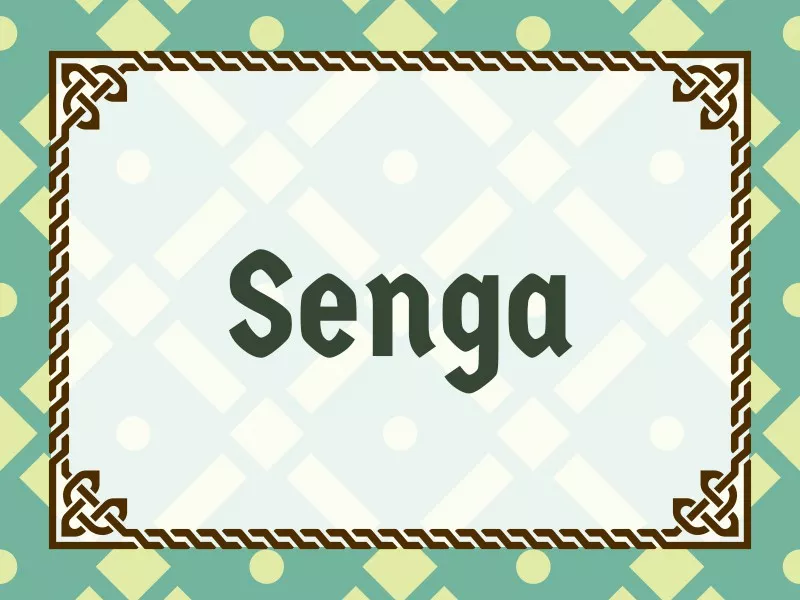
Scottish for “slender” (from the Gaelic “seang”), Senga is often linked to the name Agnes (same letters, arranged backward).
But many argue that it’s a different name entirely. Whatever the origin, baby Sengas are rare today.
Keith
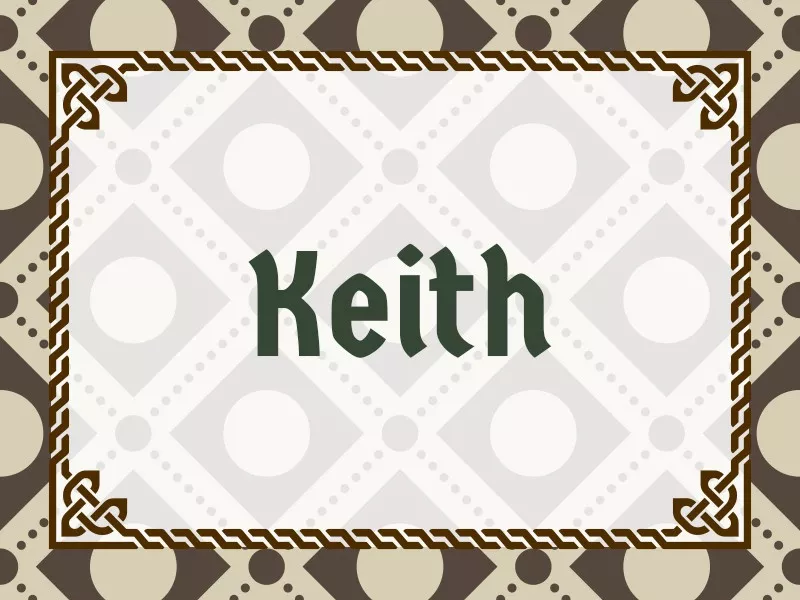
Scottish for “wood,” Keith is another traditional surname that was a popular first name in the 1940s, ’50s, and ’60s. I
t has a noble history in its place of birth but also has ties to music (Keith Richards and Keith Urban), modern art (Keith Haring) and baseball (Keith Hernandez).
Ainsley
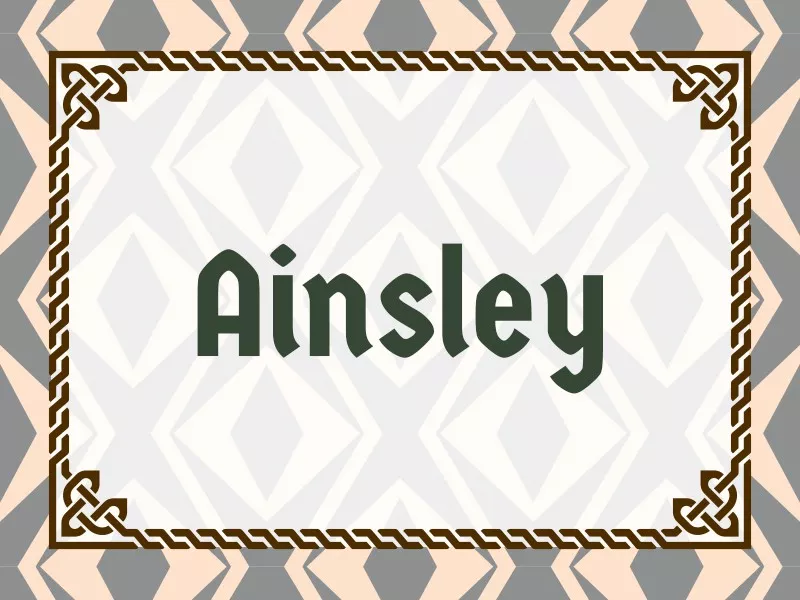
A unisex name meaning “one’s own meadow” or “solitary meadow,” Ainsley is more popular for girls than boys. It’s remained comfortably in the U.S. top 500 since 2001 and ranked No. 354 in 2020.
Pop culture references include Ainsley Tewce in Margaret Atwood’s “The Edible Woman” and Ainsley Hayes on TV’s “The West Wing.”
Ian or Iain
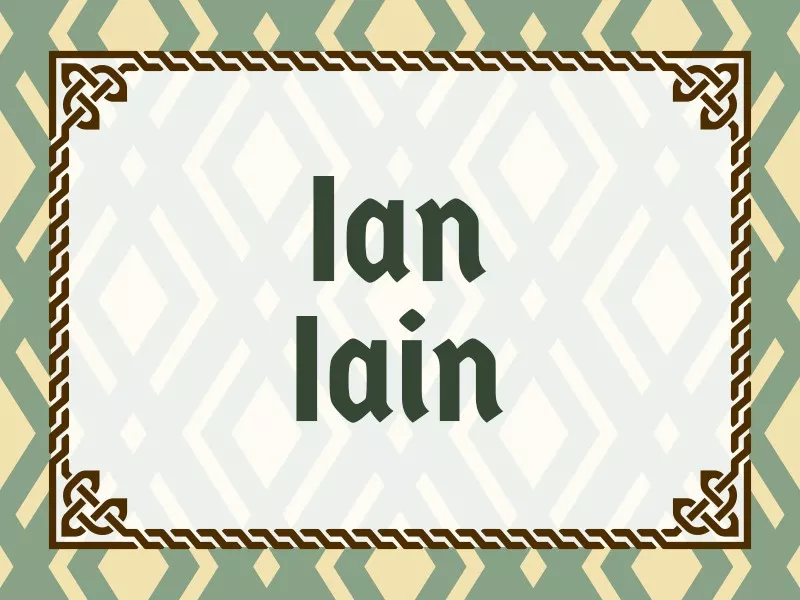
It sounds nothing like it, but Ian is the Scottish version of John. Further back, it’s derived from the Hebrew Yohanan and means “the Lord is gracious.”
The more Gaelic spelling, however, is actually Iain, as in the novelists Iain Banks and Iain Sinclair.
Eileen
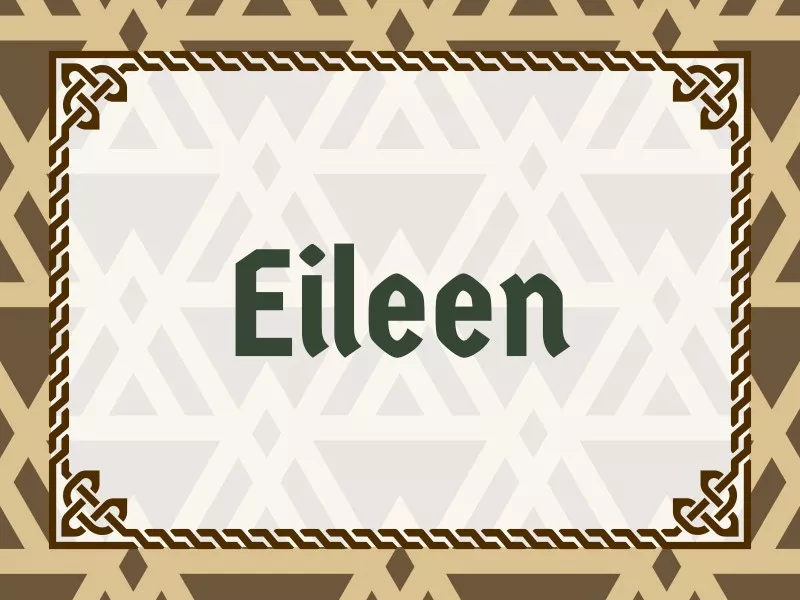
The Scottish variation of Helen, Eileen means “bright, shining one.”
It’s not as popular as the Irish variation Aileen, but it has been moving up the U.S. baby name chart since 2012. And it’s in favor in Germany, where it ranked No. 122 in 2016.
Lachlan
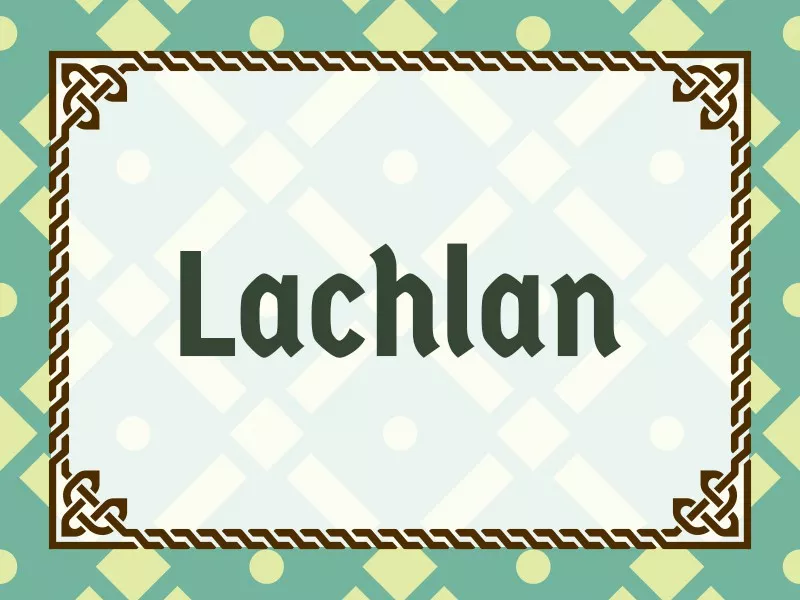
A top 100 name in Scotland, the ancient Lachlan means “from the fjord-land.” It’s also popular in England, Australia and New Zealand, and cracked the U.S. top 1,000 in 2013.
The pronunciation varies between Lack-lan and Lock-lan, so take your pick. And short forms like Lach and Lockie make it less formal.
Tavie
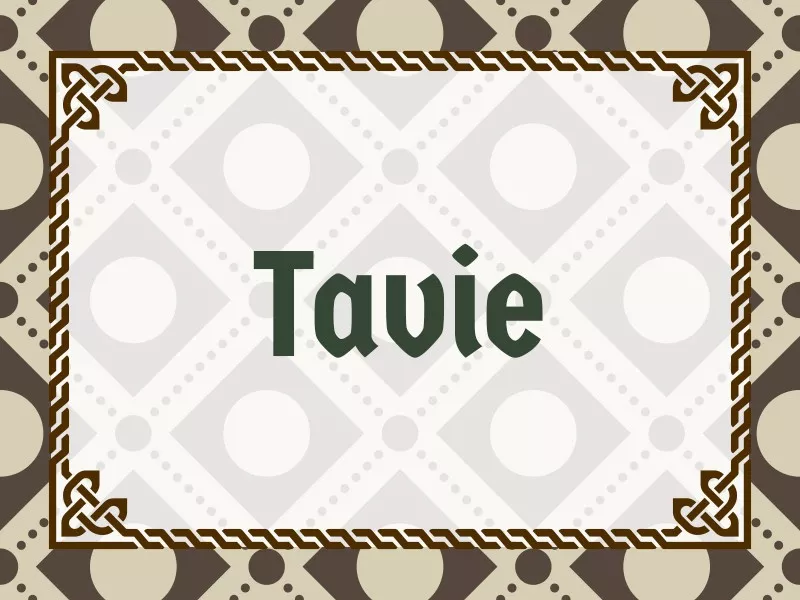
An unusual girl’s name choice is Tavie, believed to be a variation of Octavia, which is Latin for “eighth.” It was a popular Victorian name for the eighth child, which may explain why it’s not often heard today.
Award-winning actress Octavia Spencer has brought the name into the spotlight in recent years. Tavie may also mean “twin.”
Malcolm
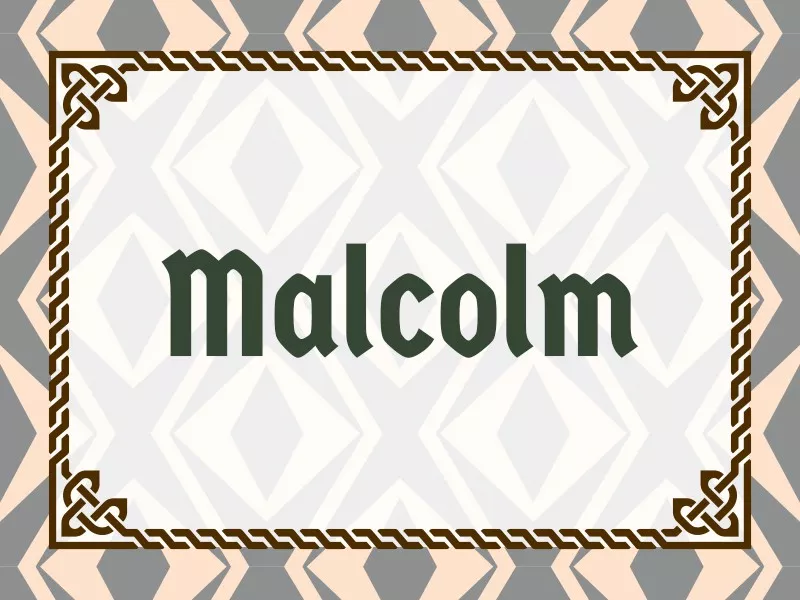
Meaning “devotee of St. Colomba,” Malcolm was Mael-Colium in Olde Scotland. It has a royal history (belonging to four Scottish kings) and also something of a hero vibe, thanks to civil rights activist Malcolm X.
Notable fictional Malcolms have appeared in “Malcolm in the Middle,” the “Outlander” series and the “Harry Potter” books.
Sorcha
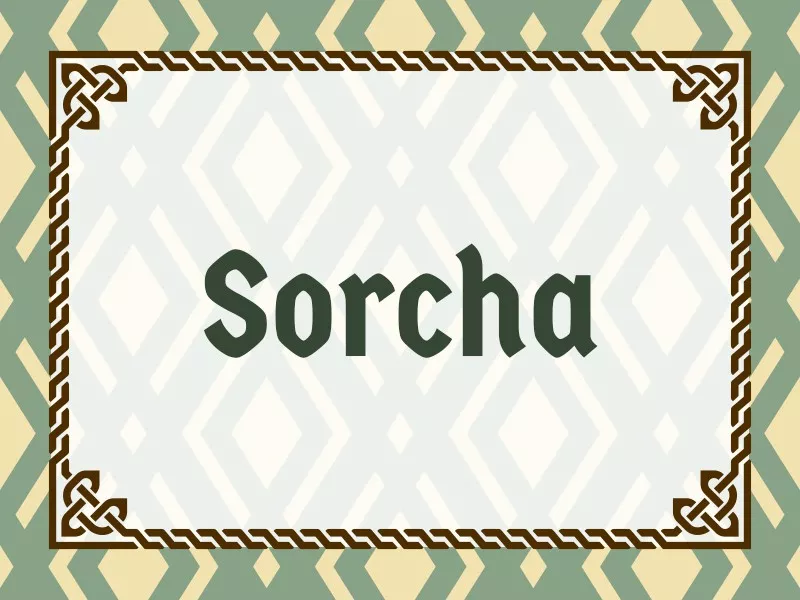
It probably originated in Ireland, but Sorcha is also common in Scottish Gaelic. Meaning “bright, shining” and pronounced Sor-ka, it has flavors of Saoirse and Siobhan.
For a spelling (and sound) variation, consider Sorsha, as in the “Willow” character.
Janet
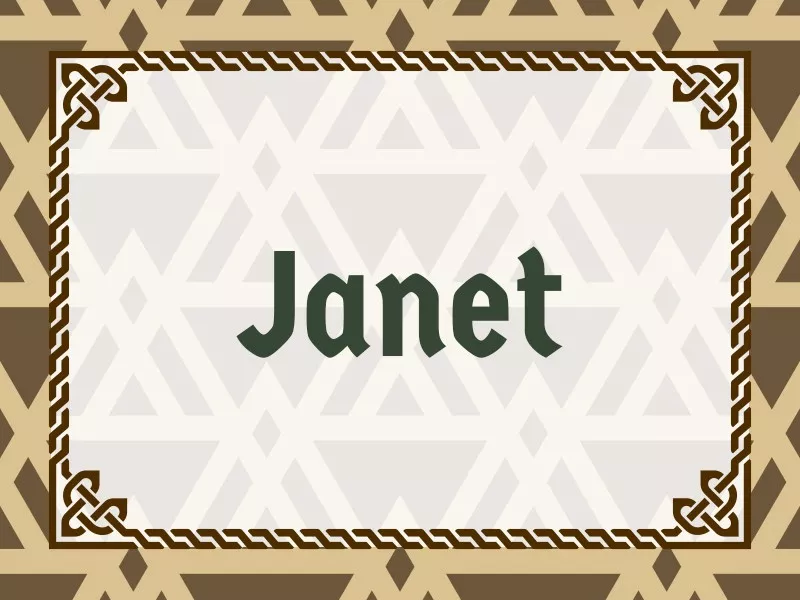
Officially a version of Jane, meaning “God’s gracious gift,” Janet became a popular girl’s name in Scotland centuries ago. It was a top 20 choice in the U.S. in the 1930s but fell out of the top 1,000 in 2012.
Famous Janets include singer Janet Jackson, author Janet Evanovich and actress Janet Leigh.
Neil
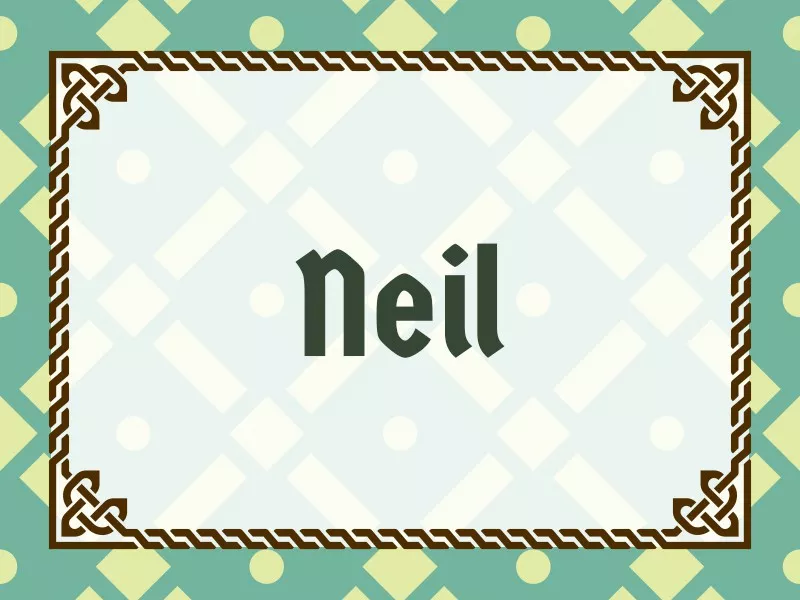
Neil (also spelled Neal, Neale and Neall) may be a form of Nicholas or come from the surname McNeil, which means “son of Neil.” A consistently popular name in Scotland, it has also been attached to the meanings “cloud” and “champion.”
Famous American bearers of the name include astronaut Neil Armstrong, musicians Neil Diamond and Neil Sedaka, and actor Neil Patrick Harris.
Davina
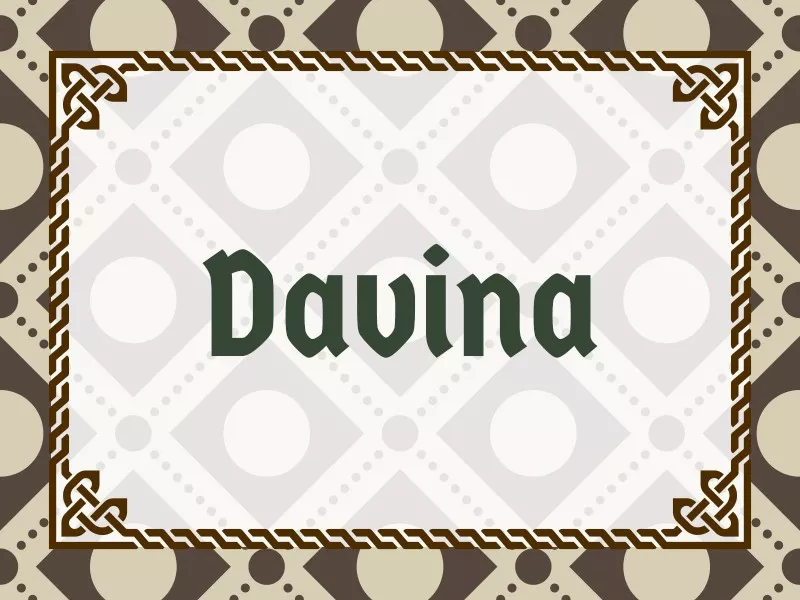
A Scottish and Hebrew name meaning “small deer,” this Scottish favorite is the most popular feminization of the name David.
Davina made a reappearance on the U.S. baby name chart in 2016 after a 20-year absence.
Rory
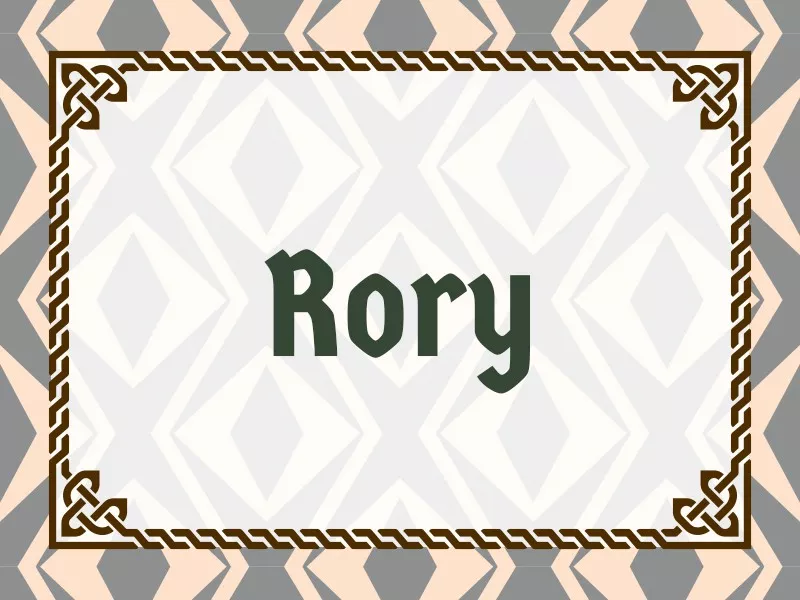
Irish for “red king,” Rory has been popular in Scotland since records began. Less common spelling variations include Ruaridh and Ruairi, and it may also be a pet name for Roderick.
Rory arrived in the U.S. in the 1940s via actor Rory Calhoun, and it made its first appearance on the baby name chart in 1947.
Maisie
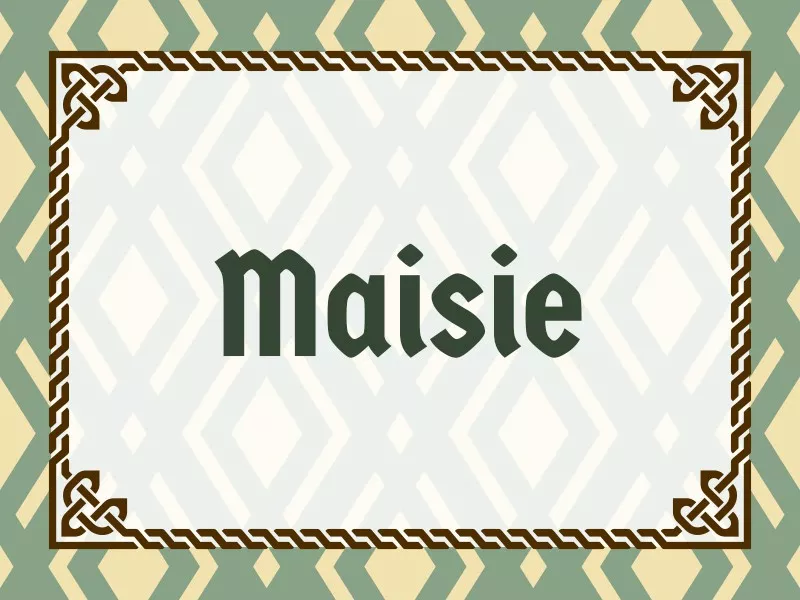
The Scottish diminutive of Margaret, meaning “pearl,” Maisie has a traditional vibe but has been embraced by contemporary parents.
In 2014, it re-entered the U.S. baby name chart and ranked No. 409 in 2020. Across the Atlantic, it’s a top 60 name in England, Ireland and, of course, Scotland.
Scott
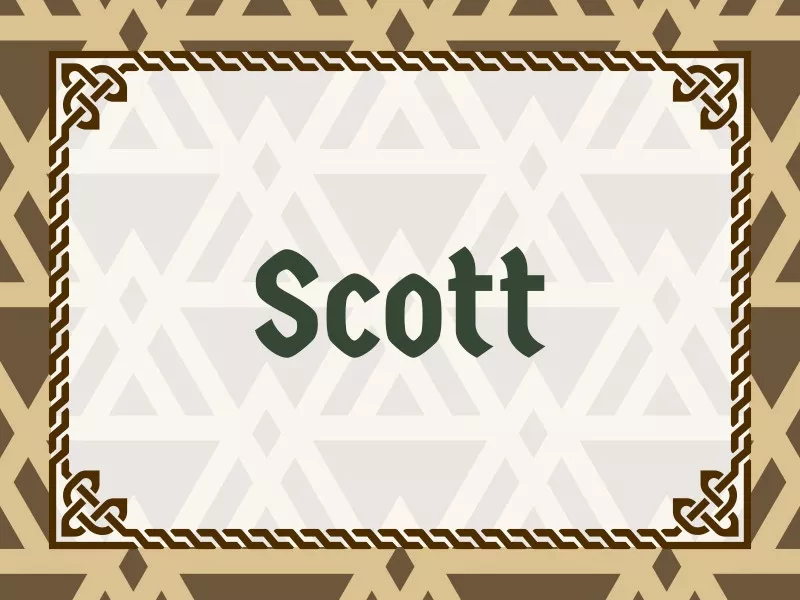
There’s no doubt where Scott comes from — it literally means “from Scotland.” It almost broke into the U.S. top 10 in the late 1960s but fell out of the top 500 in 2018.
Well-known Scotts include Scott Alan Stapp, lead singer of the band Creed; reality TV personality Scott Disick; and actor Scott Wilson.
Morag
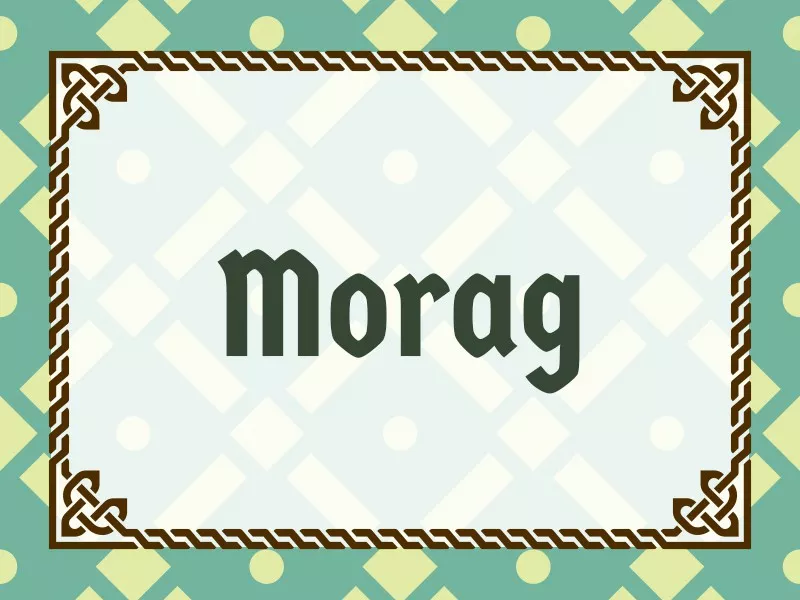
Morag means “great,” and it could, in fact, be described as one of the greatest Scottish names for girls — in that you don’t come across it anywhere else.
However, “Harry Potter” fans will be familiar with it; Morag MacDougal was a witch who attended Hogwarts at the same time as the boy-wizard himself.
Finley
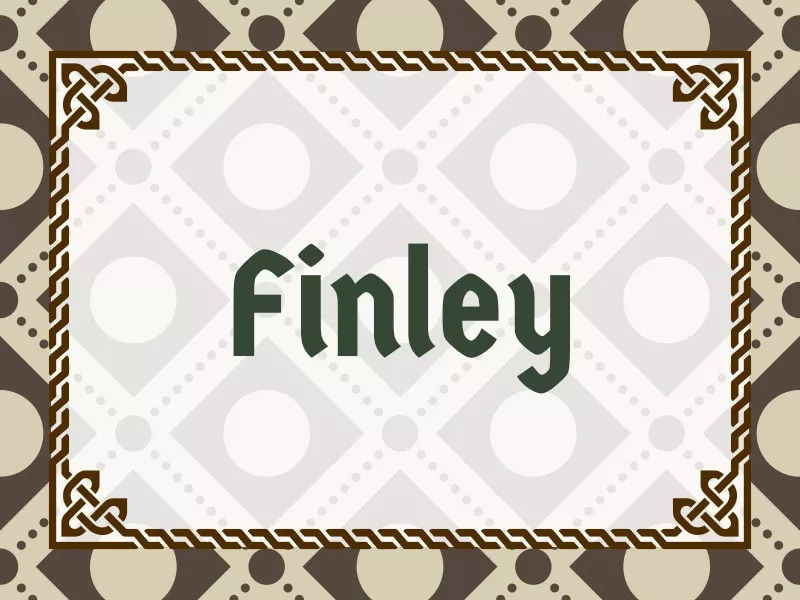
The “fair-haired hero” one-time surname Finley is truly a gender-neutral choice. According to Nameberry, girls have the edge with 57 percent, compared to 43 percent for boys.
The cute nickname Fin or Finn gives this one even greater appeal.
Morven
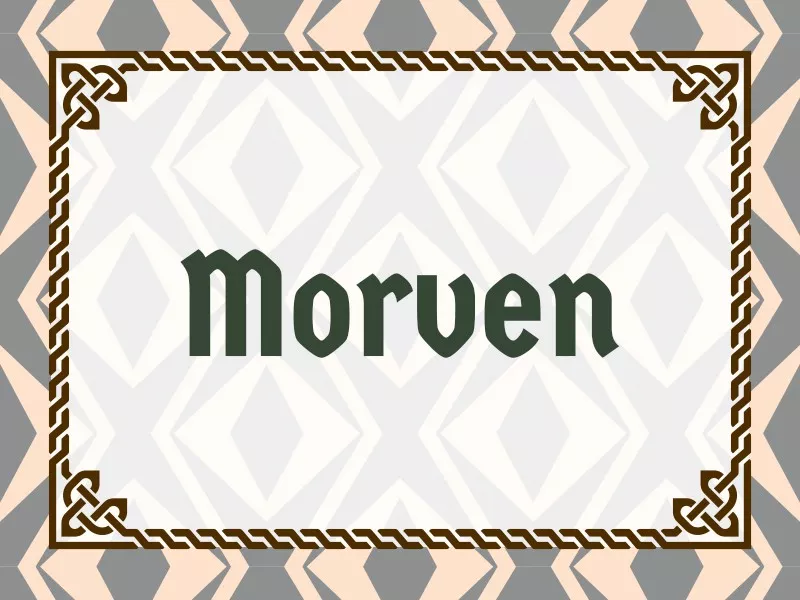
In the Ossianic poems, Morven is the name of Fingal’s kingdom. This place-name has an Olde Worlde, mystical quality but feels somewhat fresher than other Scottish “M” names like Morag and Maureen.
Its most famous bearer is Scottish actress Morven Christie, and Alan Warner’s novel “Morvern Callar” is considered a modern classic.
Donald
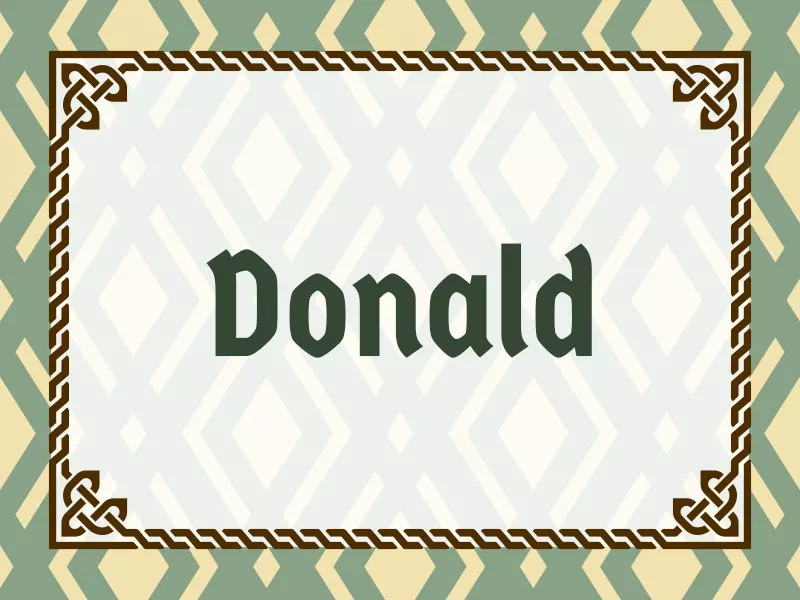
Forget Andy Stewart’s jaunty jitty “Donald Where’s Your Troosers?” More highbrow references are actor Donald Sutherland and Nobel Prize winners Donald A. Glaser and Donald J. Cram.
This boy’s name, which means “proud chief,” peaked at No. 6 in the U.S. in 1934.
Morna
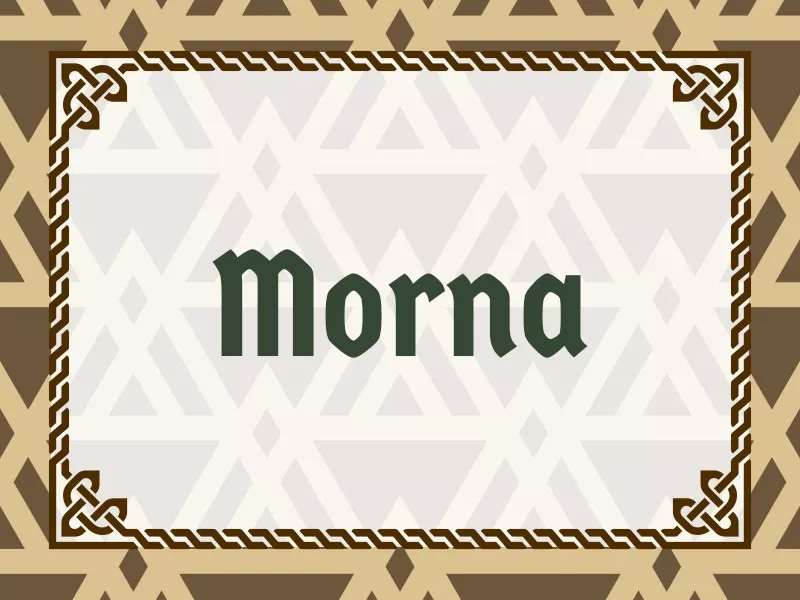
The Irish and Scottish version of Myrna, Morna might sound rather mournful, but it has a celebratory meaning: “festive.”
Famous Mornas are scarce, unless you’re a fan of Canadian pop singer (Morna) Anne Murray or British novelist Morna Stewart. But the name has a certain dreamy quality if you like that sort of thing.
Murray
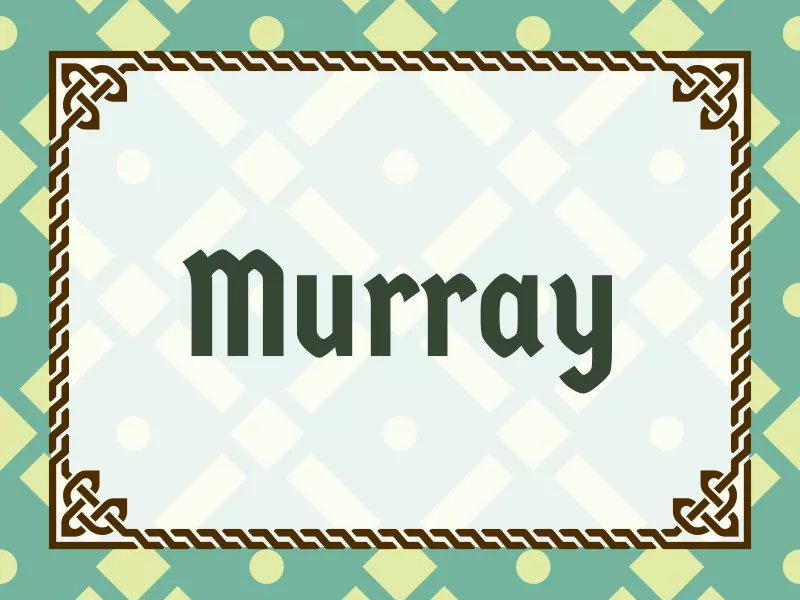
Meaning “settlement by the sea,” Murray was a common Scottish surname that currently ranks No. 79 for first names in its homeland. In the U.S., it hasn’t ranked since the mid-1970s.
Will Murray Bauman on the cult TV hit “Stranger Things” boost its appeal for future generations of parents?
Jean
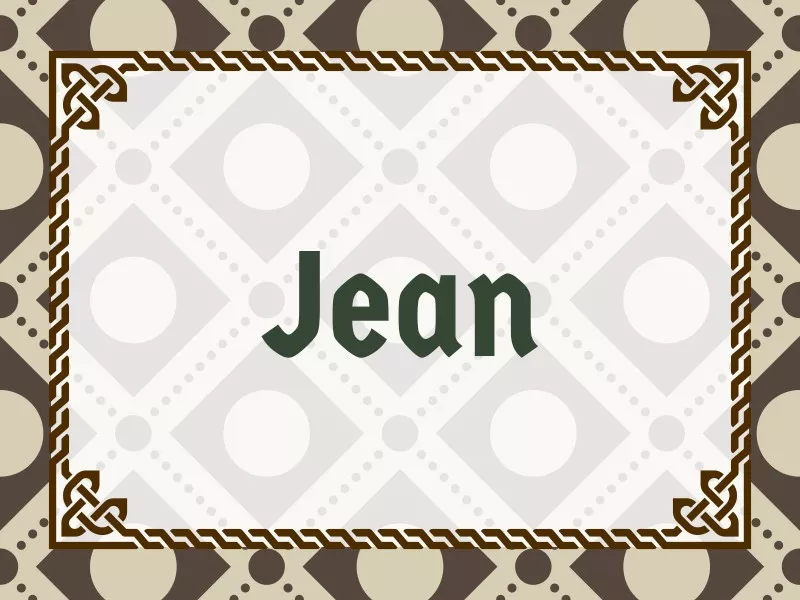
Jean was a popular name in Scotland long before Jean Harlow gave it the blonde bombshell seal of approval in the early 1930s. Meaning “God is gracious,” it was originally coined as the feminine form of John.
Jean hasn’t ranked on the U.S. baby name chart for decades but may claim a soft spot in the heart of those who still dream of Jeannie.
Douglas
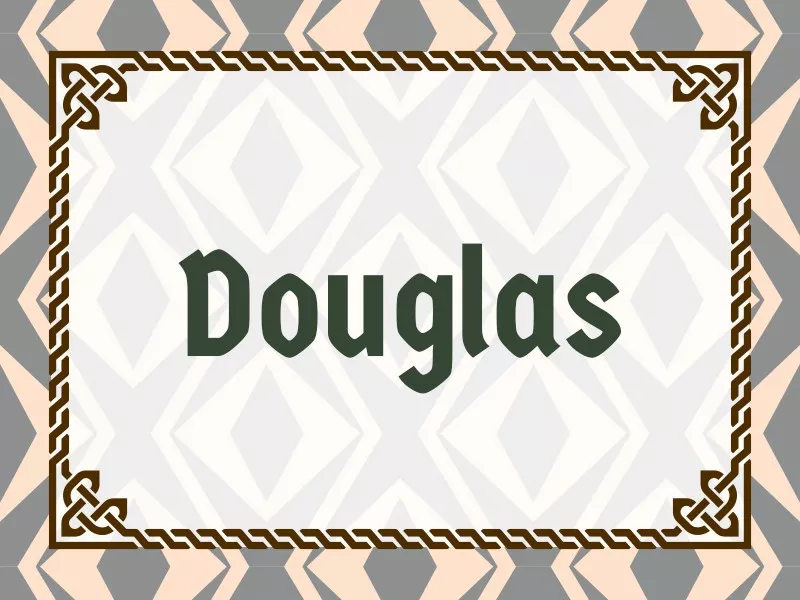
Originally a Celtic river name meaning “black water,” Douglas has been in the U.S. baby name chart since records began and ranked a respectable No. 735 in 2020.
If you think it’s a Grandpa name, the fact that it was once just as popular for girls as boys may shine a more interesting light on it.
Elspeth
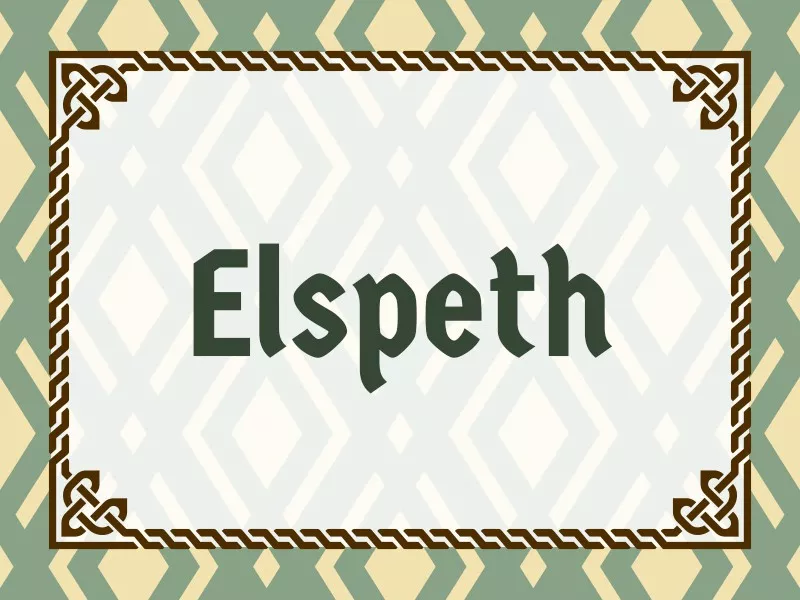
A Scottish variation of Elizabeth, Elspeth means “pledged to God” and definitely conjures up an image of a mannerly sort.
The nickname Elsie offers a slightly more playful option.
Leslie or Lesley
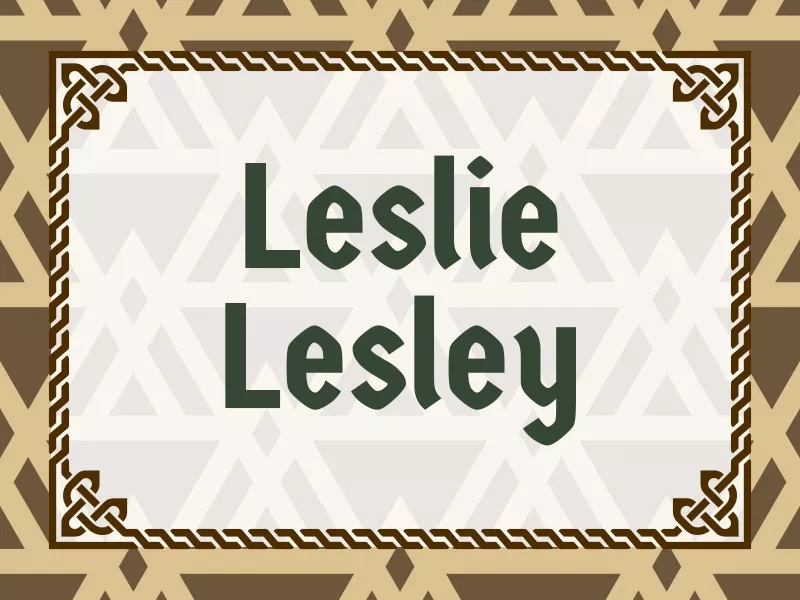
Typically spelled Leslie for a boy and Lesley for a girl, this Scottish surname means “garden of holly.” It was more popular as a boy’s name until the mid-1940s but now ranks only on the girl’s list (No. 600 in 2020).
Lauren Bacall and Humphrey Bogart named their daughter Leslie as a tribute to actor Leslie Howard.
Grear
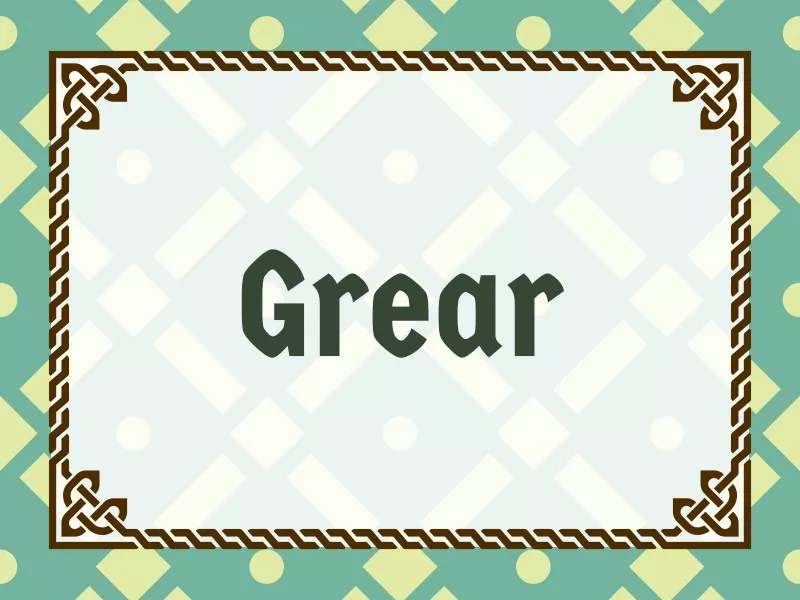
Derived from the surname Gregor, Grear means “alert, watchful.” It could also be spelled Grier or Gryer, although none of the three options will win any popularity contests.
But it enjoyed some attention in the 1940s and 1950s thanks to English actress Greer Garson.
Gordon
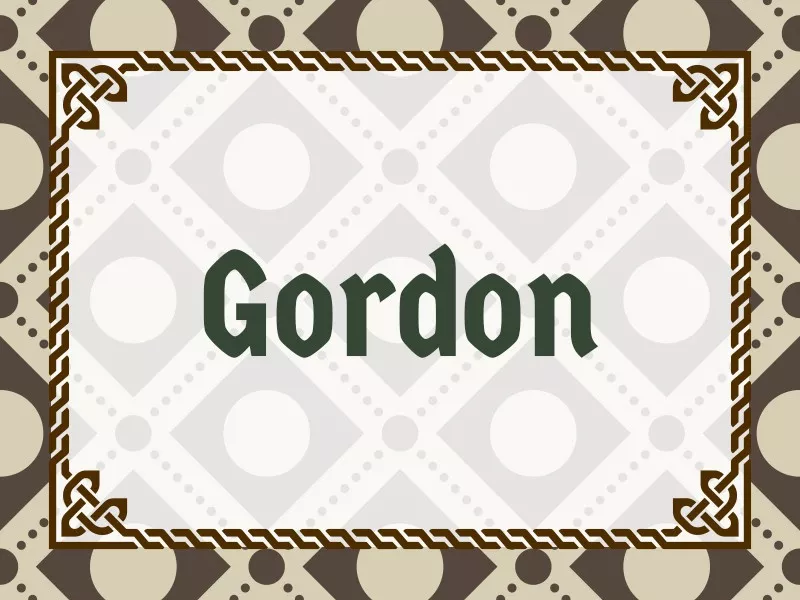
Scotland’s “great hill” is Gordon, which boasts a long history. Initially a surname, it became popular after the 19th-century General Charles George Gordon died during his defense of the city of Khartoum.
It ranked in the U.S. Top 100 from 1911 to 1943 before slipping, but it made a comeback in 2014.
Annabel
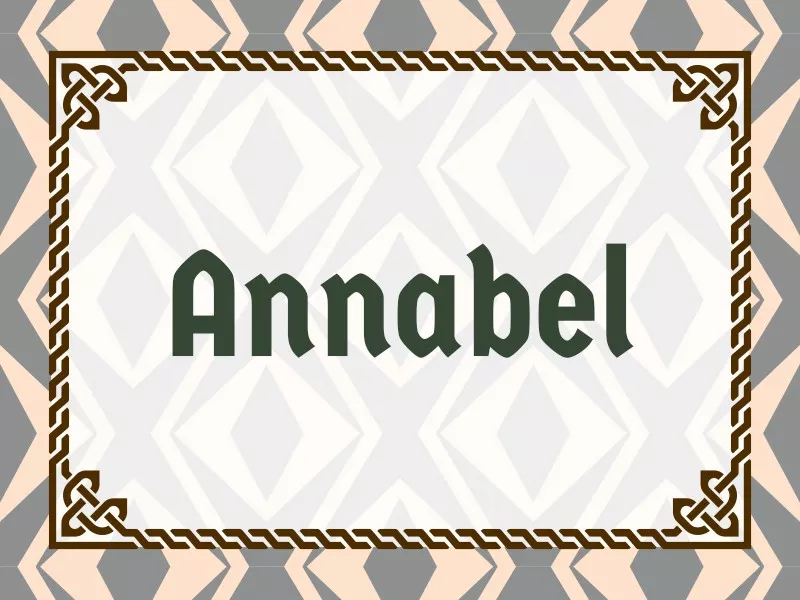
Scotland’s version of Amabel, Annabel means “loving.” And loved it was, as early as the 12th century among Scottish nobles and royals.
Famous Annabels include Canadian novelist Annabel Lyon and English former tennis player Annabel Croft. Celebrity parents who’ve chosen the name for their daughters include Davy Jones of The Monkees and actor James Van Der Beek.
Archibald
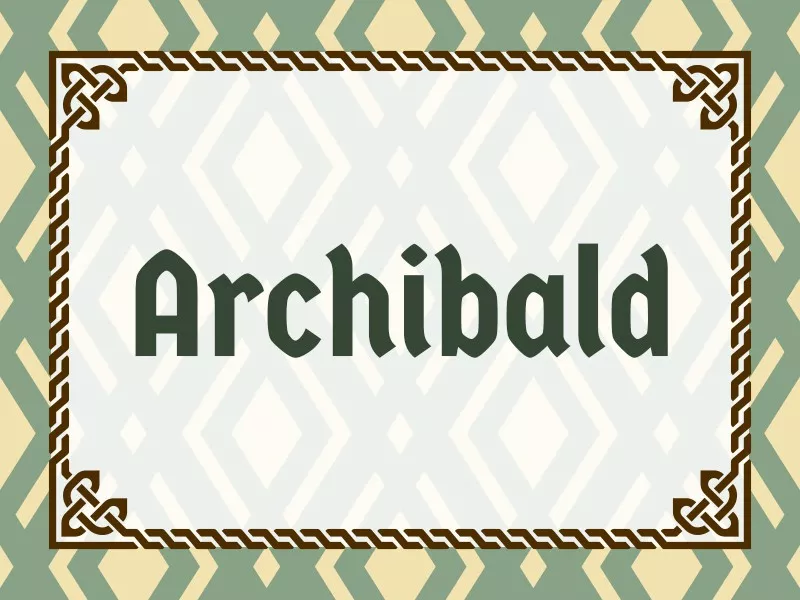
Archibald is a Spanish name (meaning “truly brave”) but was so popular in Scotland that they like to claim it as one of their own. Modern parents have favored the less stuffy Archie, but Archibald was still just outside the top 500 in England as recently as 2019.
Famous bearers of the name include poet Archibald MacLeish, and Cary Grant was actually born Archibald Alexander Leach.
Roy
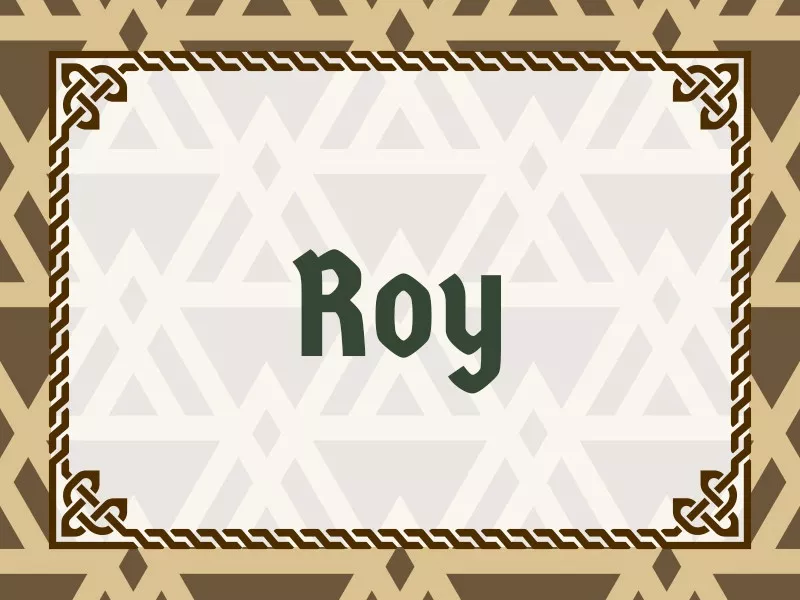
The French/Celtic name Roy means “red-haired,” and indeed, one of the most famous bearers is the flame-haired Scottish outlaw and folk hero Robert “Roy” Macgregor, the main character of Sir Walter Scott’s novel “Rob Roy.”
Other famous Roys (who don’t necessarily have red hair) include singer Roy Orbison and artist Roy Lichtenstein.
Aila
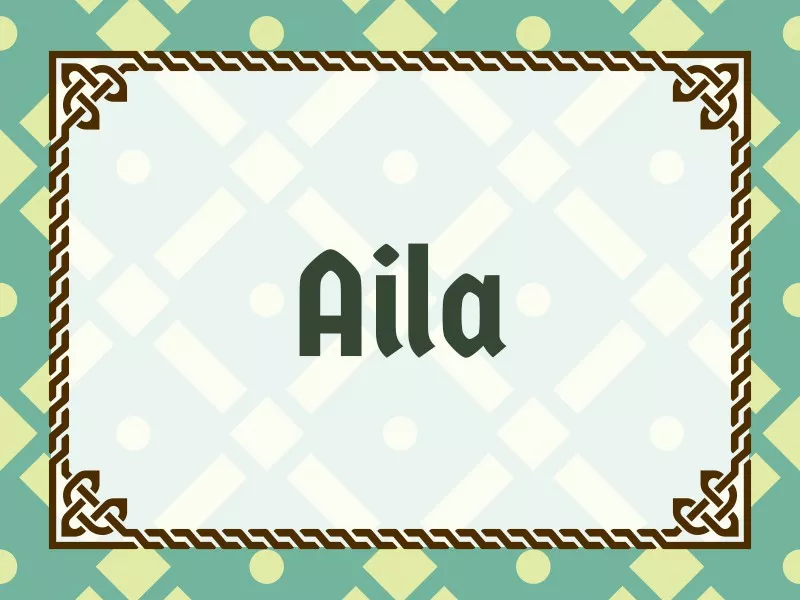
Aila, pronounced either “eye-luh” or “ay-luh,” has been used in many languages across the centuries. In Gaelic, it translates to “from a place of resilience.”
It’s a wonderful choice for families with a strong legacy of overcoming hardships or challenges who hope to pass on that strength to the next generation.
Kenzie
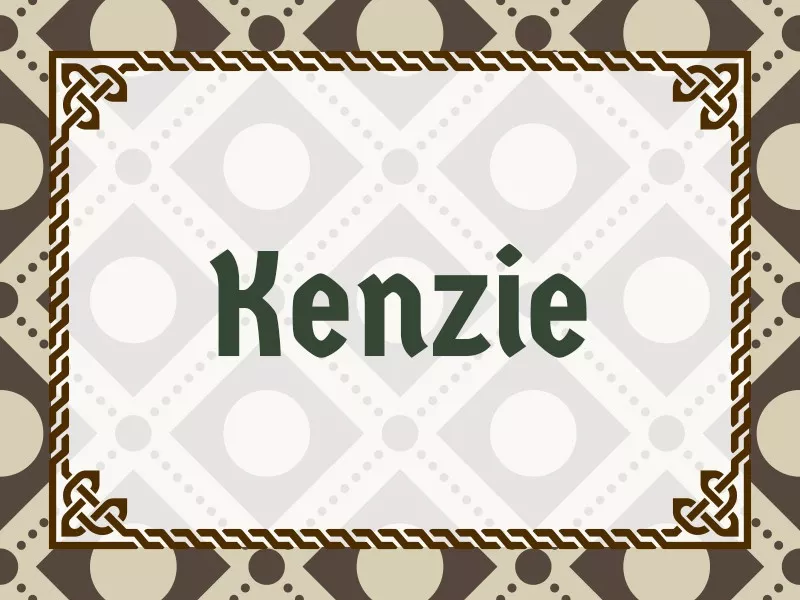
Kenzie is often used as a nickname for McKenzie, but it can stand as a sweet, sassy Scottish baby name all on its own. McKenzie has Scottish and Gaelic roots meaning “fair one” or “bright one.”
It might remind you of the noble McKenzie clan from the “Outlander” series, but McKenzie has been used as a girl’s name for such a long time that it’s unlikely anyone will make the connection.
Callum
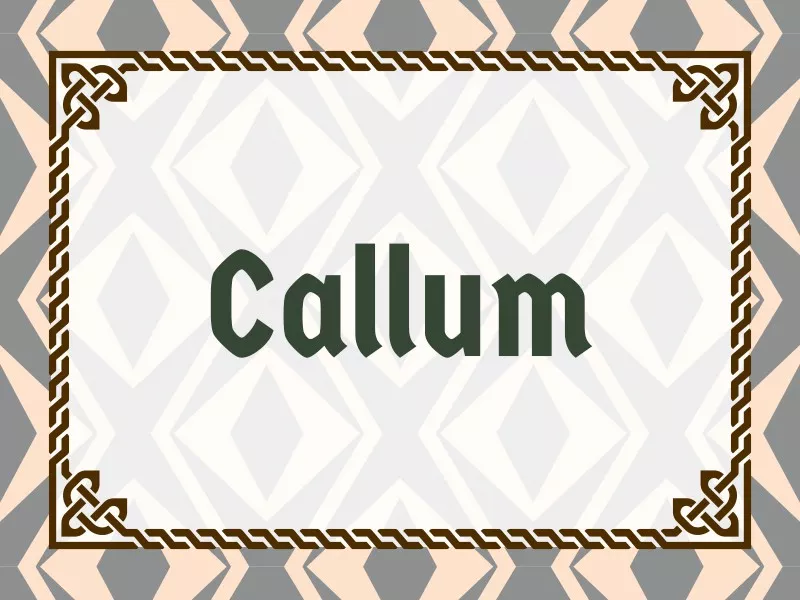
The name Callum is just a syllable away from the word calm, and its meaning isn’t too far off. Callum is a Scottish and Gaelic name derived from the Latin word “columba,” which means dove.
It was very popular in Ireland and other countries with a strong Christian tradition because doves are a symbol of purity, peace and the divine. In 2017, it ranked 34th on Scotland’s baby boy names chart.
Annella
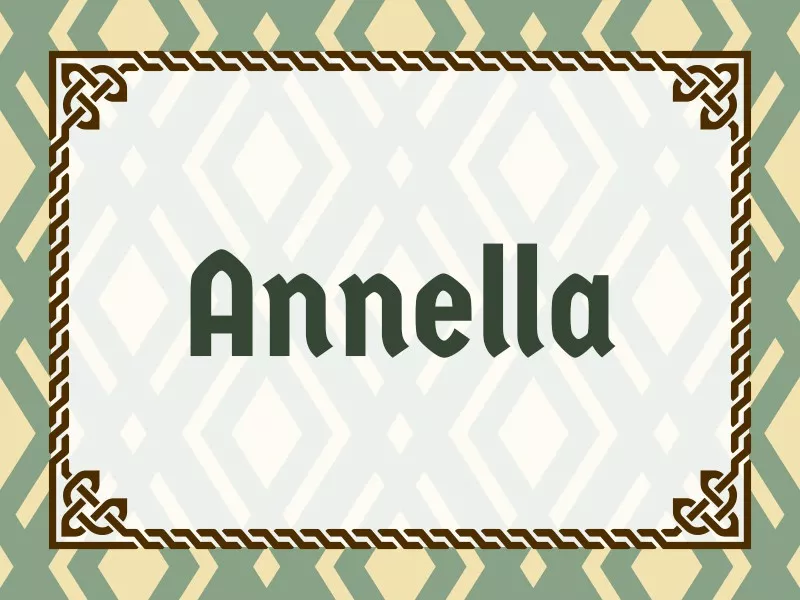
Anne, meaning “grace or favor,” is a common name in the U.S. If you’re looking for a name with a similar meaning but a more unique sound, the Scottish Highlands variation, Annella, is perfect.
If Annella seems too long, it can always be shortened to Ella or Annie.
Flynn
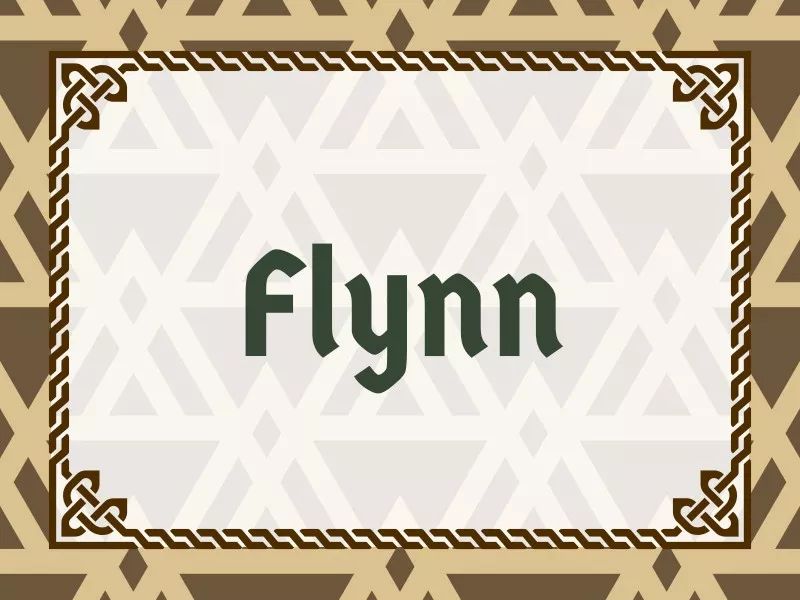
Upon hearing the name Flynn, your mind probably goes directly to Flynn Rider, the rebellious male lead of Disney’s “Tangled.” The name, an Anglicized version of the Gaelic name “Ó Floinn,” means “reddish,” or son of a man with red hair.
But you don’t have to be a redhead to like the name Flynn. Orlando Bloom and Miranda Kerr selected it for their little boy, and it’s often associated with the “Robinhood” actor Errol Flynn.
Gavenia
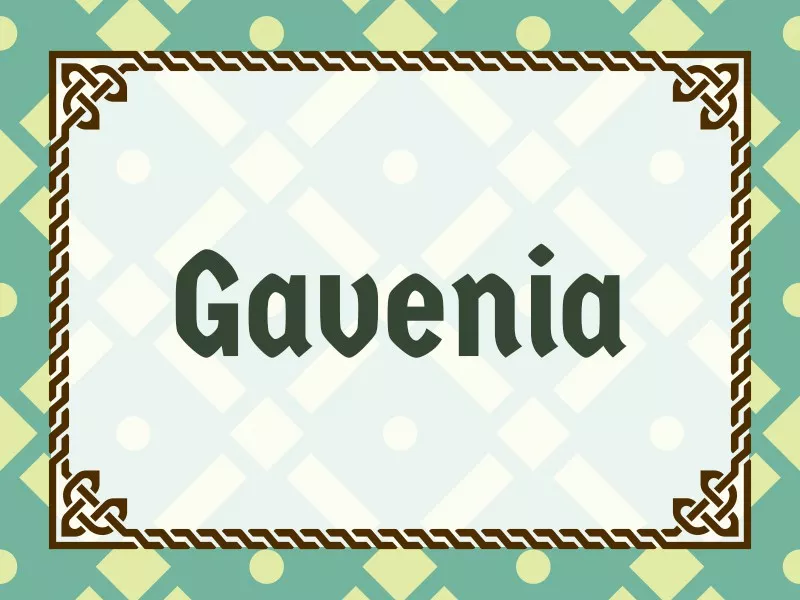
This Gaelic baby name has a simple, yet super cool meaning: white hawk. The image of a white hawk soaring through the sky is a powerful one, and the name Gavenia has a powerful sound, too.
For a nickname, Gavenia is sometimes shortened to Nia or Gia.
Art
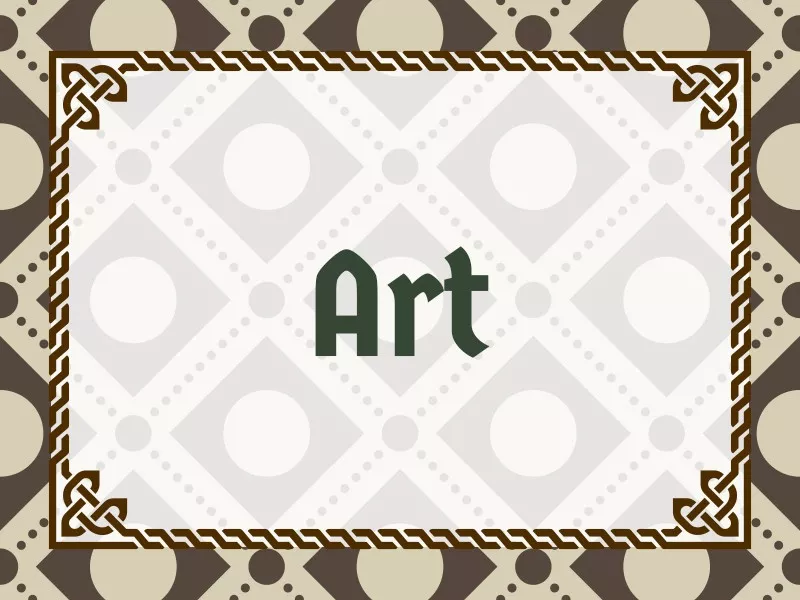
The name Art actually has little to do with painting or drawing. The name is a shortened version of the Celtic name Arthur, like the king who pulled the sword from the stone.
Arthur is a form of the Latin name Artorius, which means courageous and noble. Art means much of the same thing, with more of an emphasis on strength. Some believe it means “strong as stone” or even “strong as a bear.”
Sean
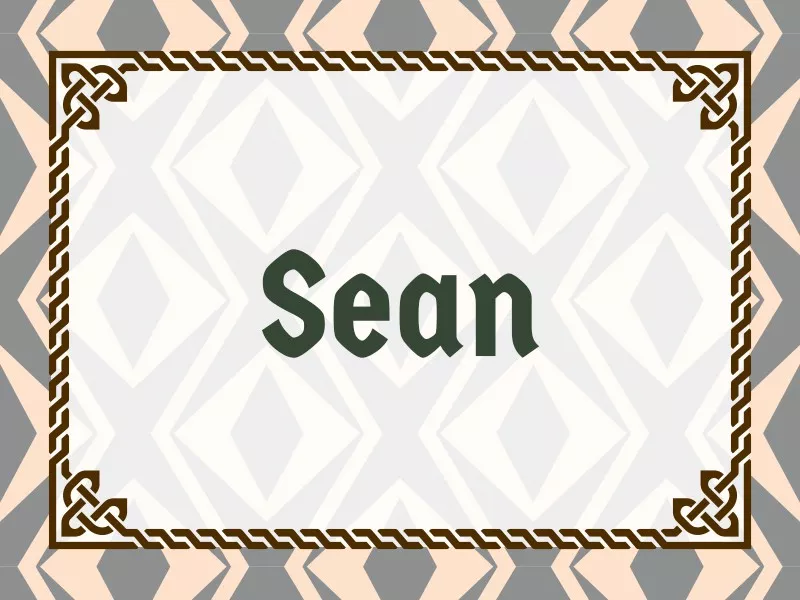
Sean has been used in Scotland for over a century. It’s a Celtic derivative of John that means “grace of God.”
The name is also associated with a river in Ireland, and similar variations include the very Irish-sounding Sionán and Siobhan. Sean was most popular in Scotland in the 1930s, but very few Sean’s have been registered there since the 1990s — around the same time Scottish actor Sean Connery’s James Bond days were officially over.
Aggie
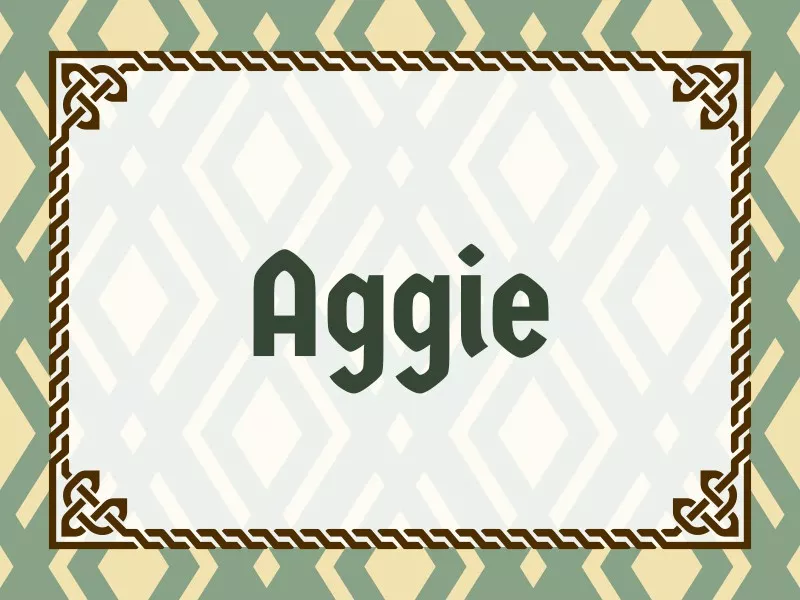
Aggie is a popular Scottish nickname for the English name Agatha or Agnes. It’s derived from the Greek name Agathe, meaning “good.”
A baby bestowed with the name Aggie is supposedly blessed with an intrinsically kind and moral nature. Agatha is also thought to mean noble and brave.
Lilias
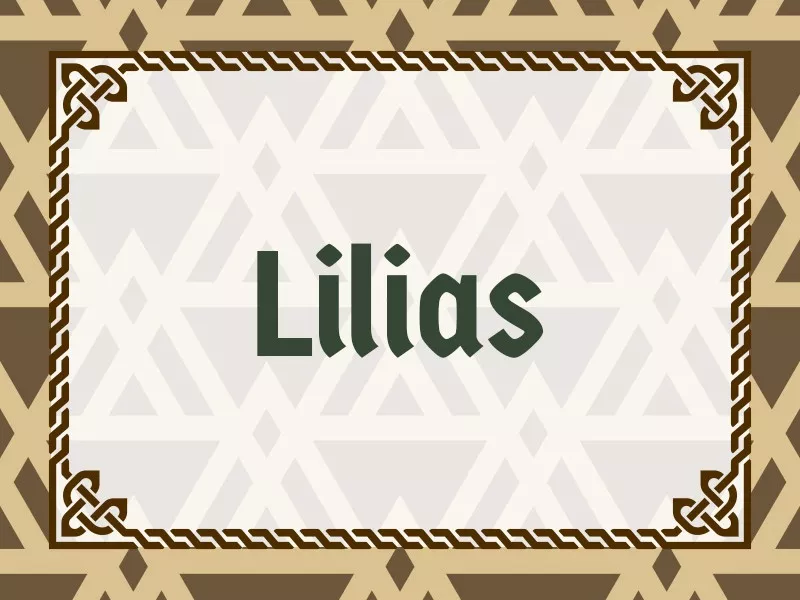
If the Scottish baby name Lilias sounds familiar, that’s because it’s a variation of the popular, vintage baby name Lily.
It comes from the Latin word “lilium,” which refers to the beautiful, white lily flower. While lilies traditionally represent purity, but lilies aren’t all white. They come in a variety of vibrant colors and variations, and baby Lilys and Liliases do, too.
Campbell
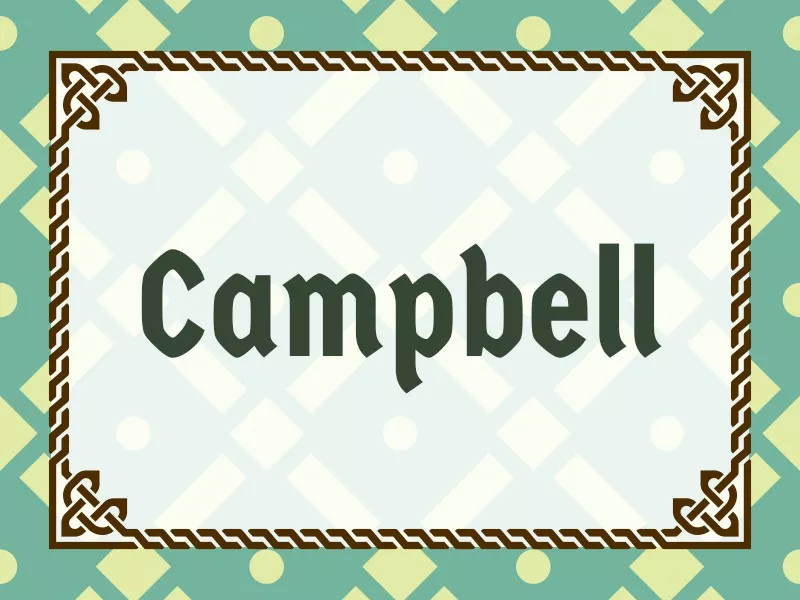
Campbell is a traditional Scottish surname, but more recently, it has become a popular given name as well. It’s Gaelic for “crooked mouth,” but its Latin form, “bello campo,” translates to “of the fair field.”
Either way, Campbell is a fun and unusual name that might remind people of their favorite bowl of chicken noodle soup.
Ceit
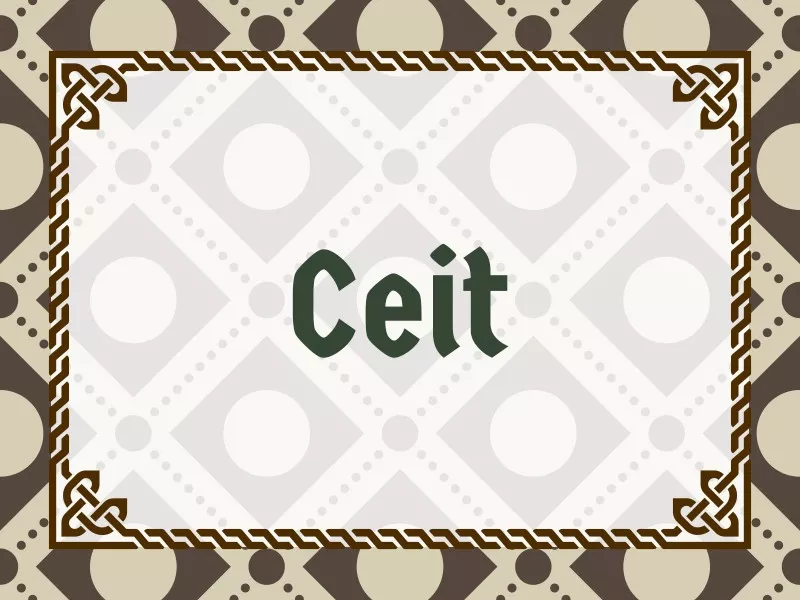
We’re not usually a fan of spelling common baby names in odd ways just for the sake of making them unique, but this alternative spelling of Kate is legitimate. Ceit has been a Scottish/Gaelic version of Catherine or Kate for centuries.
Like the name Kate, it means pure, but it’s also the name of powerful rulers throughout history, including the Russian empress Catherine the Great.
Mairi
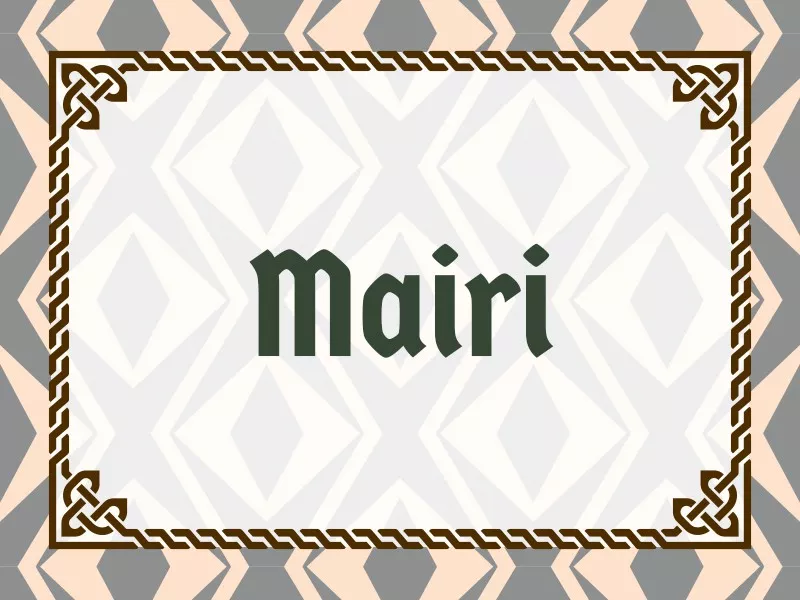
For a Scottish take on the traditional English Mary, try Mairi. It looks nearly identical, but it’s actually pronounced “MAW-re,” giving it more of a Celtic sound.
Mairi means “of the sea,” so it’s an excellent name choice for babies who will be raised near the ocean or on an island.
Seamus
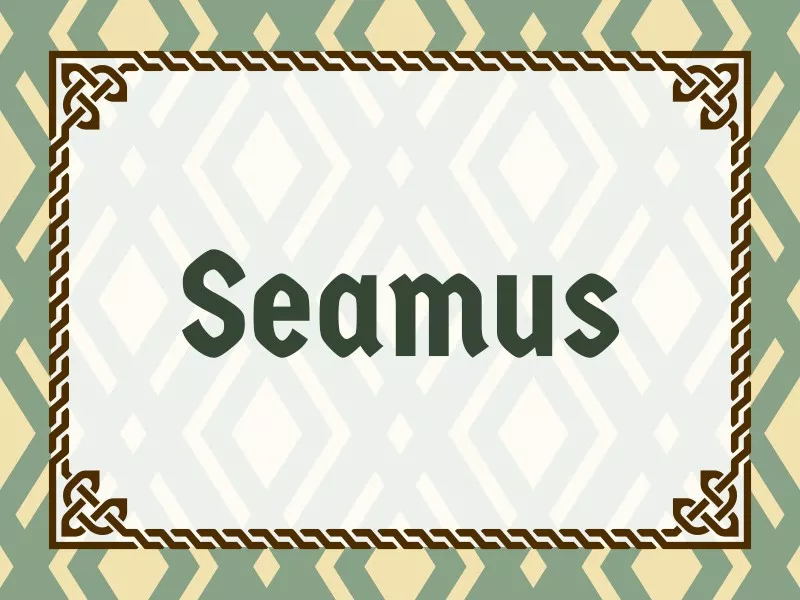
Seamus is one of the most stereotypically Irish names ever, but it’s also a popular name in Scotland. The name has the same Latin origin as James, meaning “one who supplants.”
It’s a popular biblical name, especially for strong-willed boys who want to take life by the horns and effect change.
Euna
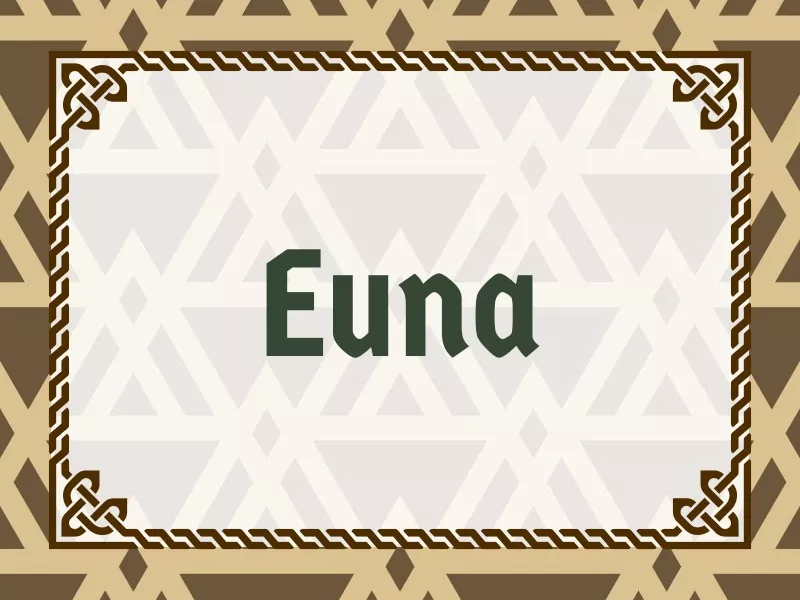
Euna is a Gaelic version of the name Una. It’s derived from the Greek words “eu” and “nike,” meaning “strong victory.” The rare name also represents unity and moral goodness.
There are several spelling variations from other languages, and the name seems to serve those who carry it well. Case in point: Olympic figure skater Yuna Kim and Euna Lee, a brave and talented Korean-American journalist.
Nessa
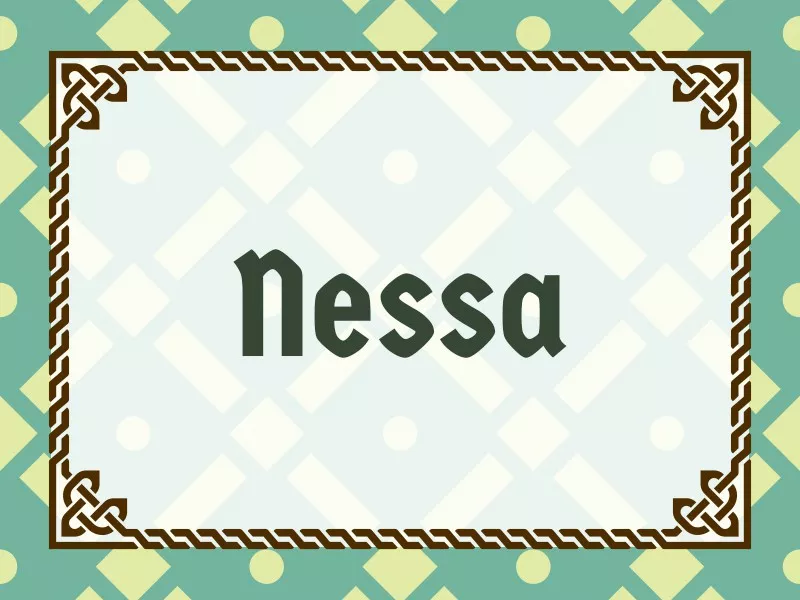
No, Nessa isn’t the name of the fabled Scottish Loch Ness Monster. That’s Nessie, silly. Nessa is a shortened version of the name Agnes, which means pure.
The name Nessa can also refer to a lush geographical headland. Both meanings evoke a sense of new beginnings, so it’s a nice option for a spring baby name that’s not as obvious as April or Daisy.
Angus
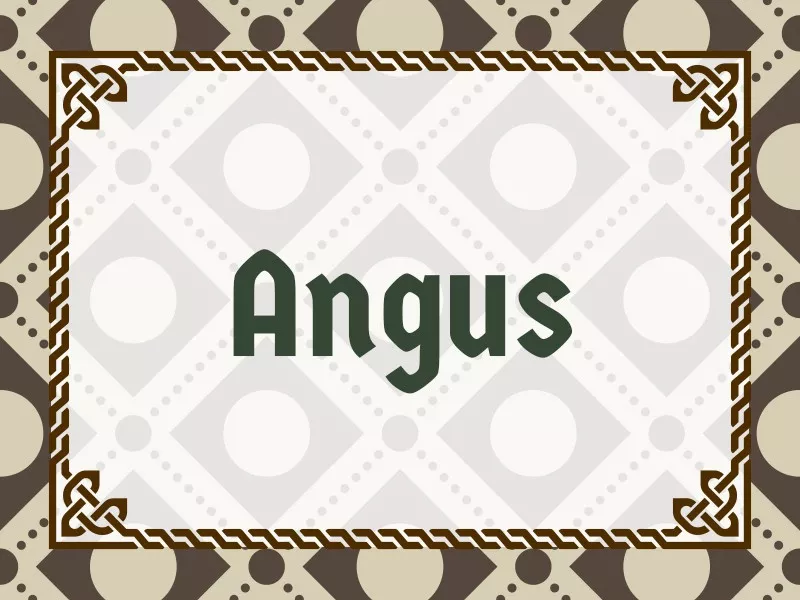
The Scottish name Angus was first made famous by Shakespeare’s famous Scottish play, “Macbeth.” The boy’s name is a Scottish classic, with Gaelic origins meaning “one strength.”
The name has a storied background. In one Irish legend, Angus Og is a supernatural chieftain who brought wealth and good times to mankind. Aonghus, an older spelling of the name, was also used as the name of an Irish god of love and everlasting youth.
Interestingly, the name Angus is now more popular in Australia than in Scotland. Most likely, this is due to the popularity of the Scottish-born Australian guitarist Angus Young, one of the cofounders of AC/DC.
Cora
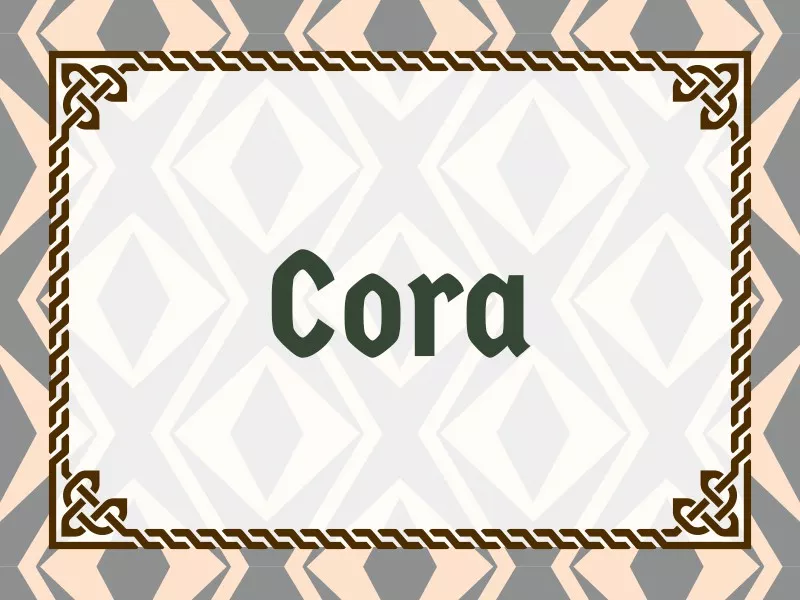
Cora, quite simply, means maiden. Many names are used by more than one country and have different meanings in each, and Cora is one of them. The ancient Greeks used Cora as a name for the goddess Persephone. In Gaelic, it means “honest” and “virtuous.”
The name is sometimes spelled Kora or Korra, like in the animated Nickelodeon series “The Legend of Korra.”
Rae
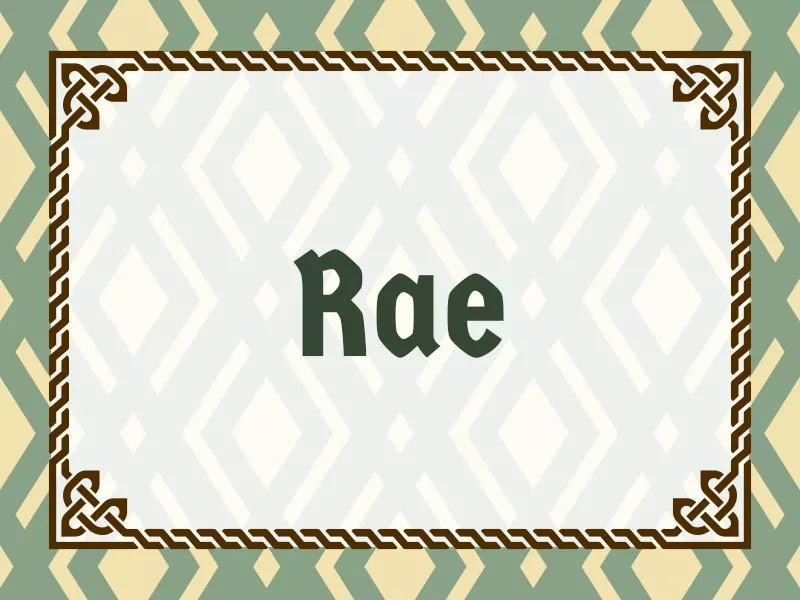
Rae is the Scottish version of the beautiful baby girl name Grace. It can also be considered the feminine form of the boy’s name Ray, meaning “wise protector.”
The thing about names is that anyone can bestow a new meaning upon them. Rae could also represent rays of sunlight or remind you of your favorite Star Wars character.
Cian
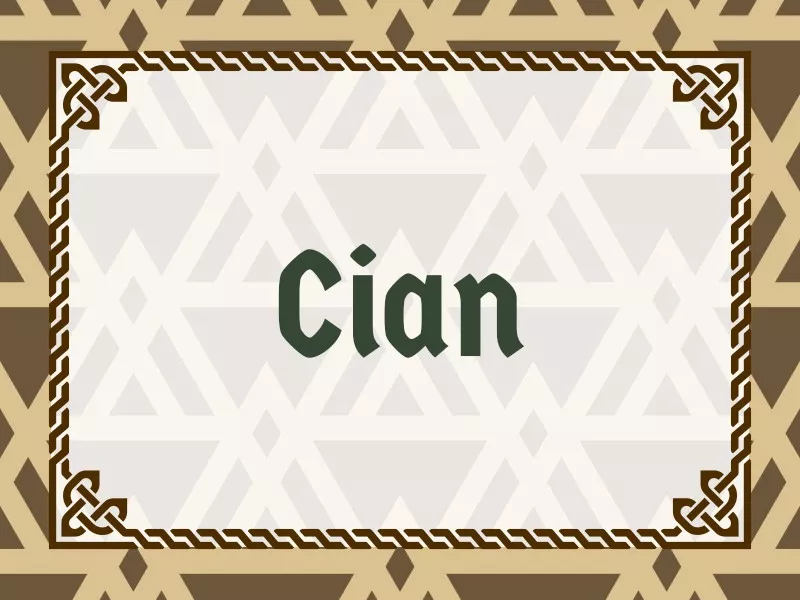
Parents who hope to pass wisdom onto their new baby might like the name Cian. Pronounced “KEE-an,” the traditional Gaelic name means “ancient.”
According to Irish legend, Cian was a man who could transform himself into other beings at will. While we can’t promise that any baby name will give your kids supernatural abilities, Cian does give you a cool backstory to share.
Elsie
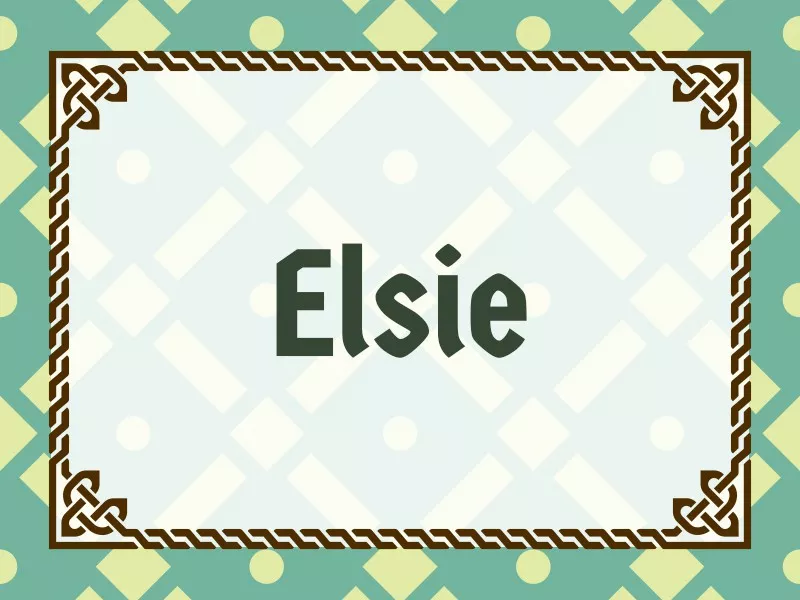
The Scottish baby name Elsie is one of the cutest names we’ve heard. It’s a shortened version of Elspeth, but there’s no reason it can’t stand as a first name all on its own.
The name comes from the Hebrew word Elisheba, which means “God is my oath.” Even if you’re not religious, it’s a sweet-sounding alternative to the overused English names Ella and Ellie.
Lennox
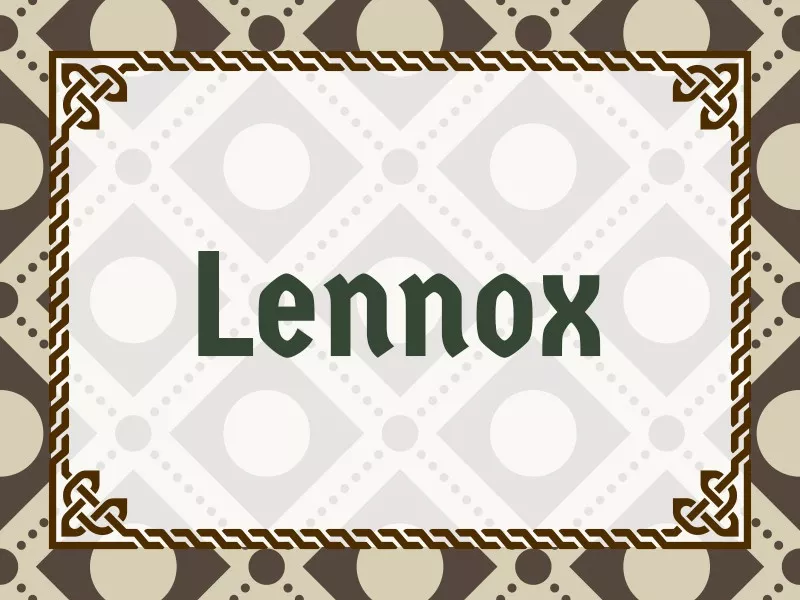
If you’re going for a Scottish name with some edge to it, the name Lennox is your best bet. Any names containing the letter “x” have an extra dose of grit, and the unisex name Lennox is no exception.
It began as a Scottish surname meaning “field of elms.” While trees sound more serene than adventurous, elm trees are stately and imposing ones that have the strength to weather years of harsh storms. One of the most popular Scottish names, Lennox is currently ranked No. 407 on the baby name chart.
Gordania
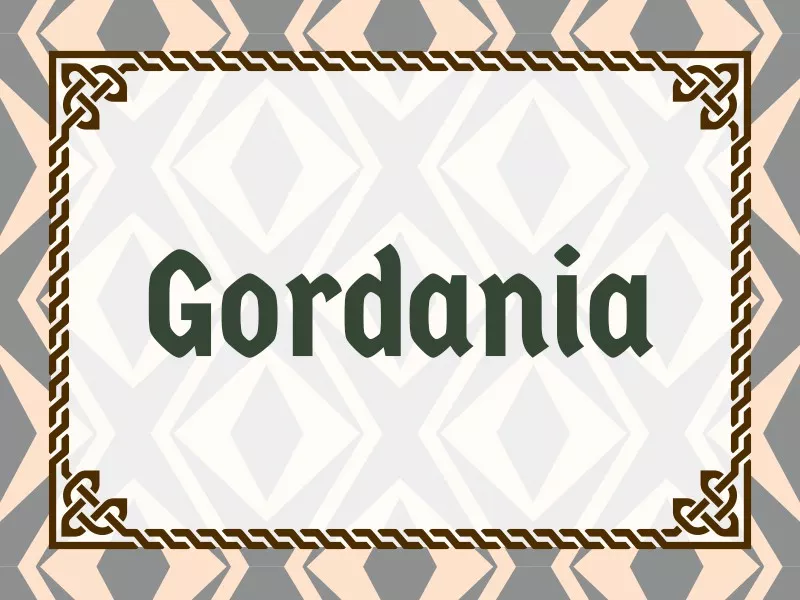
Gordania is quite an uncommon name, even in Scotland. The name has a sophisticated, almost royal sound to it, which makes sense given the name’s bold meaning: heroic.
The name is virtually unused in the U.S., with less than 10 babies given the name in 2018. If you like the name but aren’t sure about its intimidating length, consider Dani or Nia for nickname options.
Camden
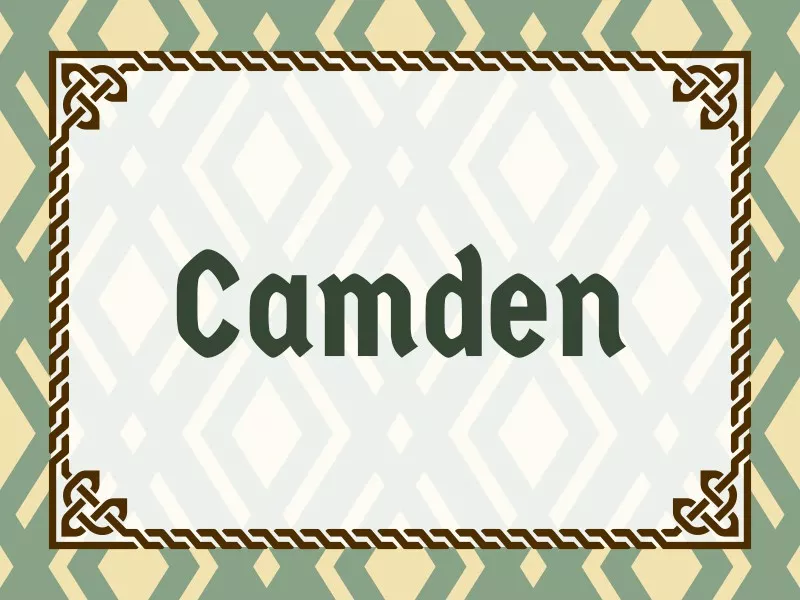
Camden is a fun unisex name meaning “winding valley.” It’s an ancient Scottish baby name, originating in a town called Chipping Campden in Gloucestershire. The first-ever recorded use of Camden, if you include spelling variations, was recorded in 1086.
While the name has never risen to the top 20 most popular names, Camden has risen drastically in popularity in recent years. As of 2021, it’s ranked the 99th most popular boy’s name in the U.S. It’s a great choice for parents who want a less common name that’s still easy to pronounce and spell.
Liam
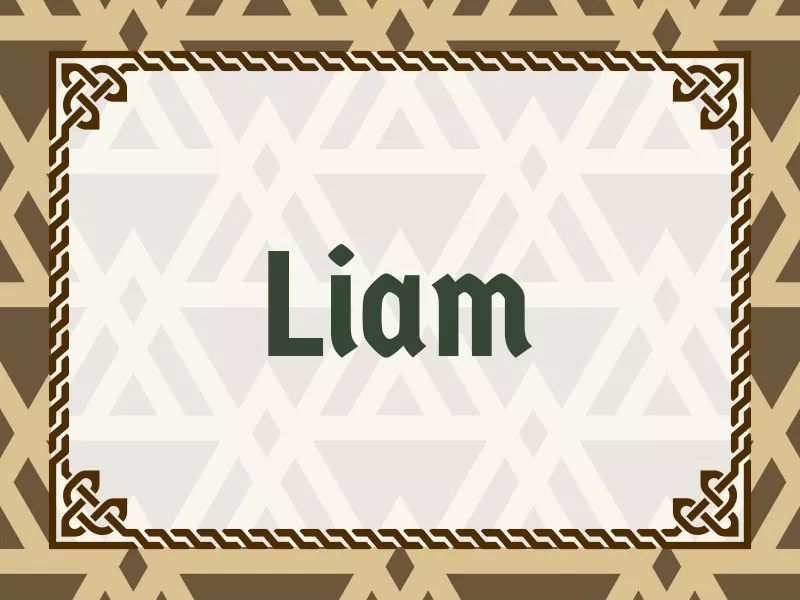
While Liam is technically an Irish name, it’s an extremely popular Scottish baby boy name as well. It means “resolute warrior” and “protector” — a great choice for a firstborn who will likely be an older brother to future siblings.
It’s actually a shortened version of the name Uilliam and is often used as a modern version of the English name William. It’s still uncommon in the U.S., but it’s becoming more popular thanks to the success of actor Liam Neeson, who played crucial characters in several award-winning films including “Batman Begins” and “Schindler’s List.”